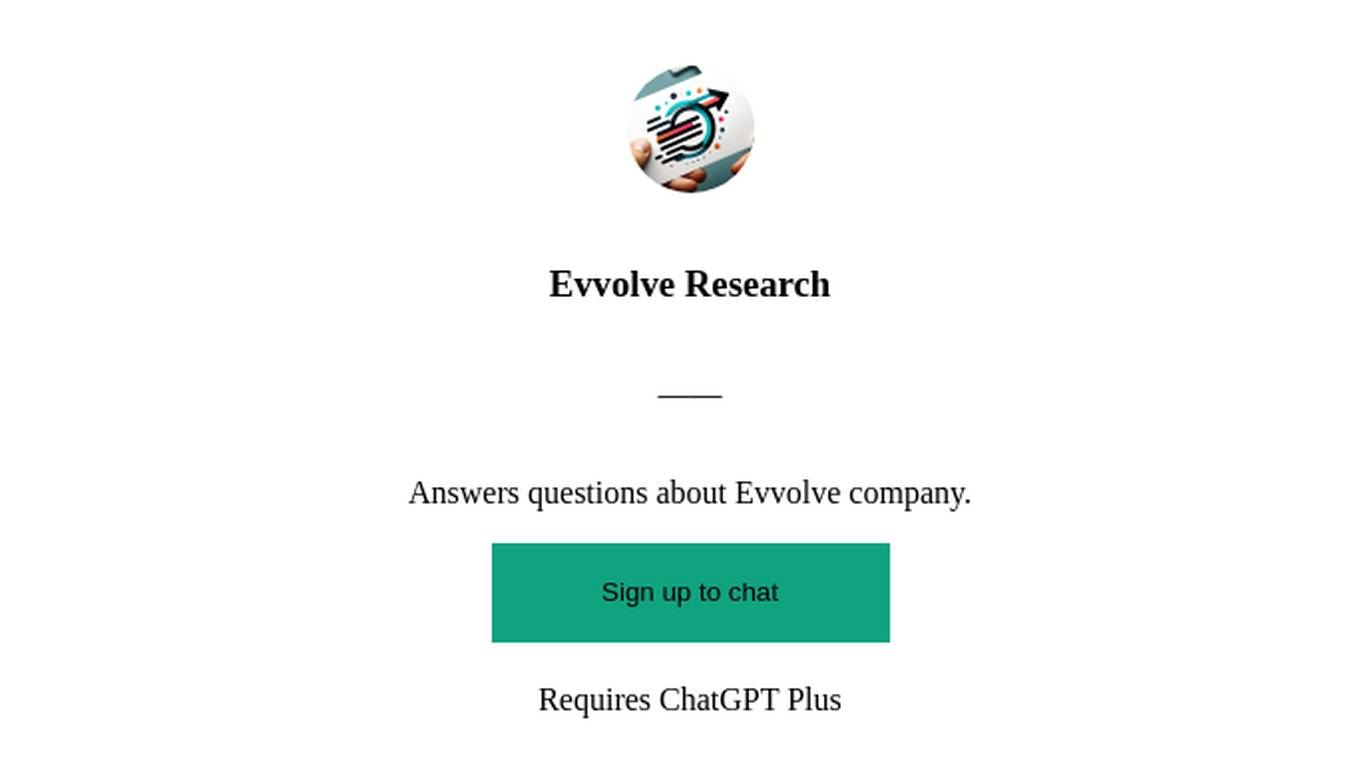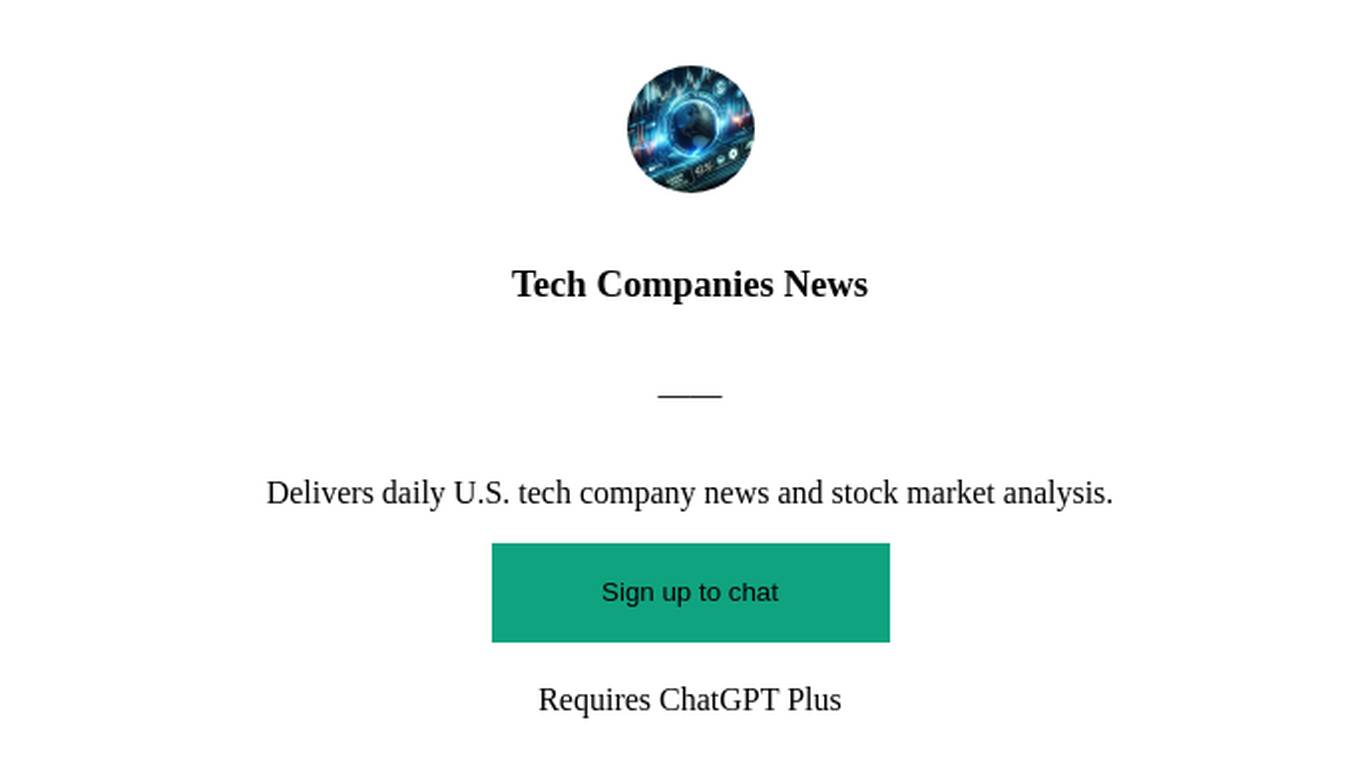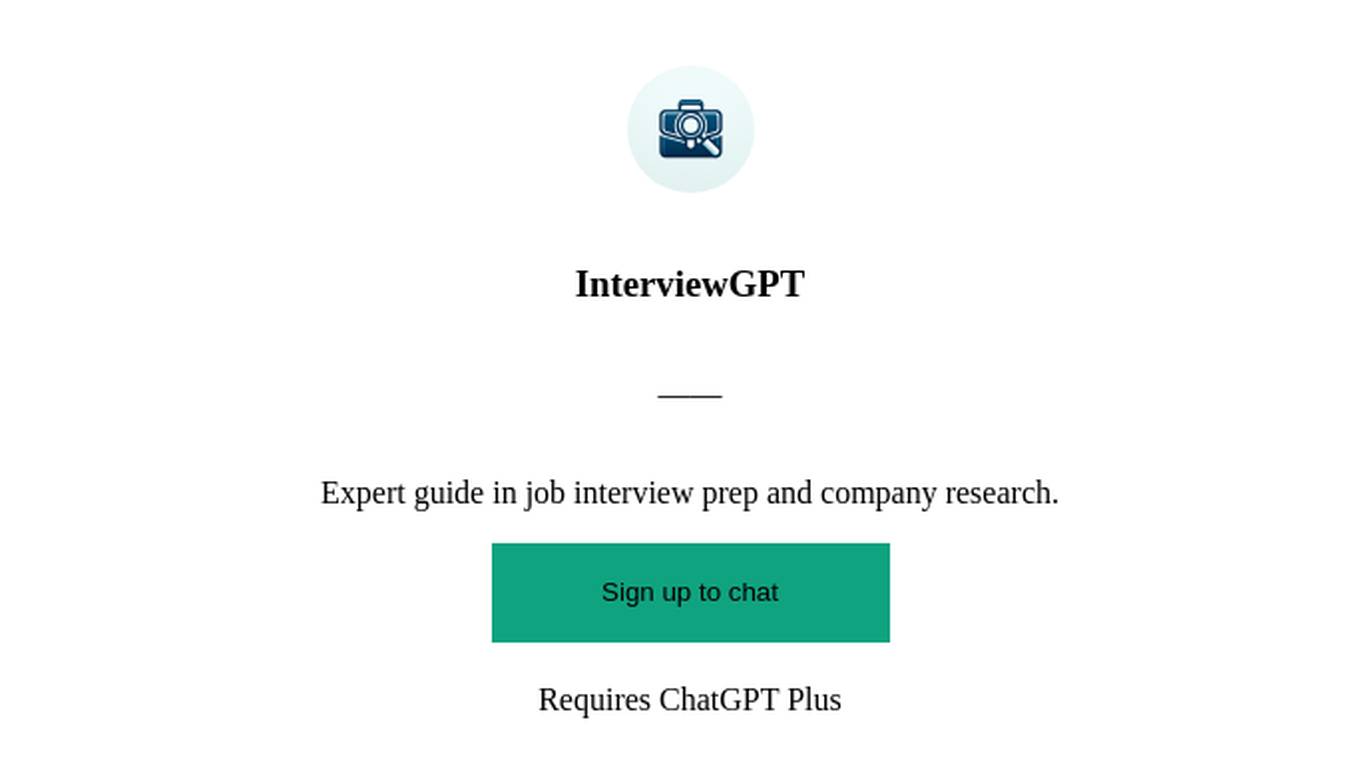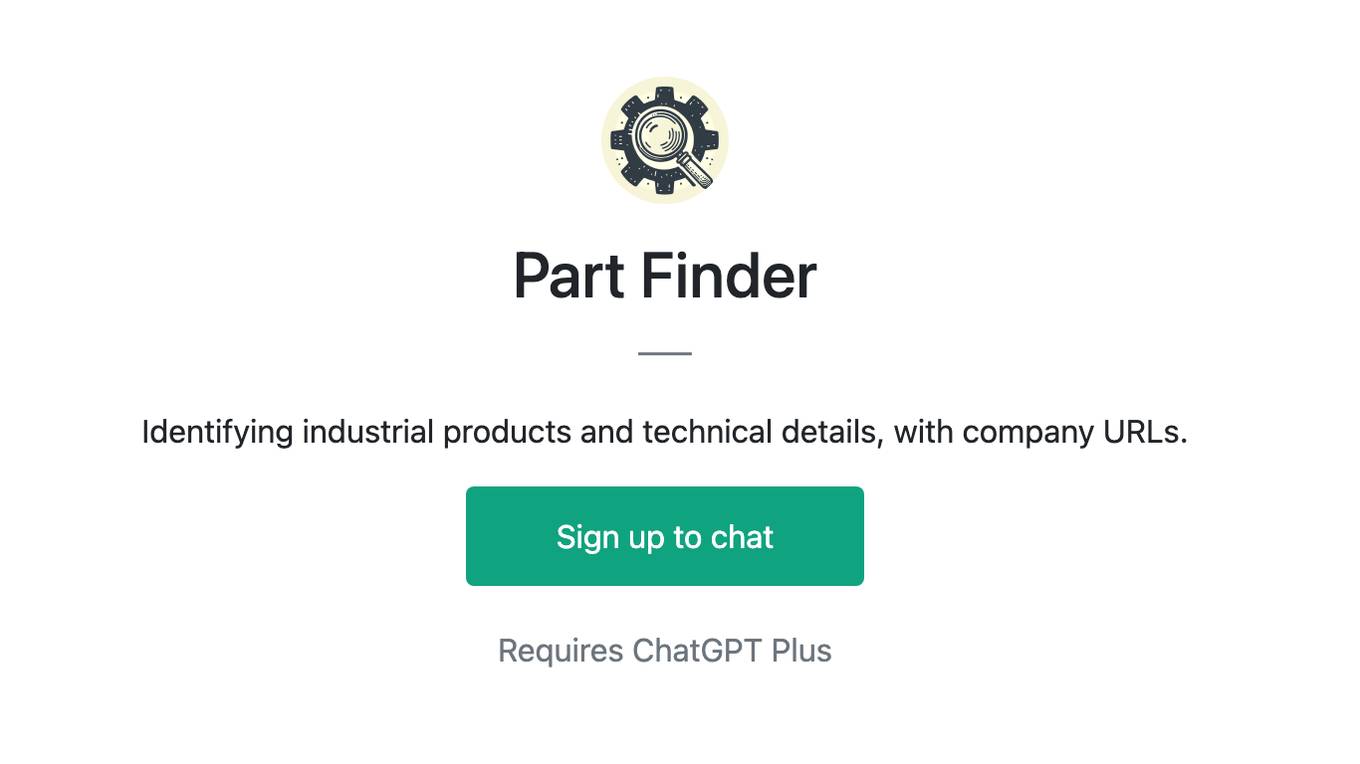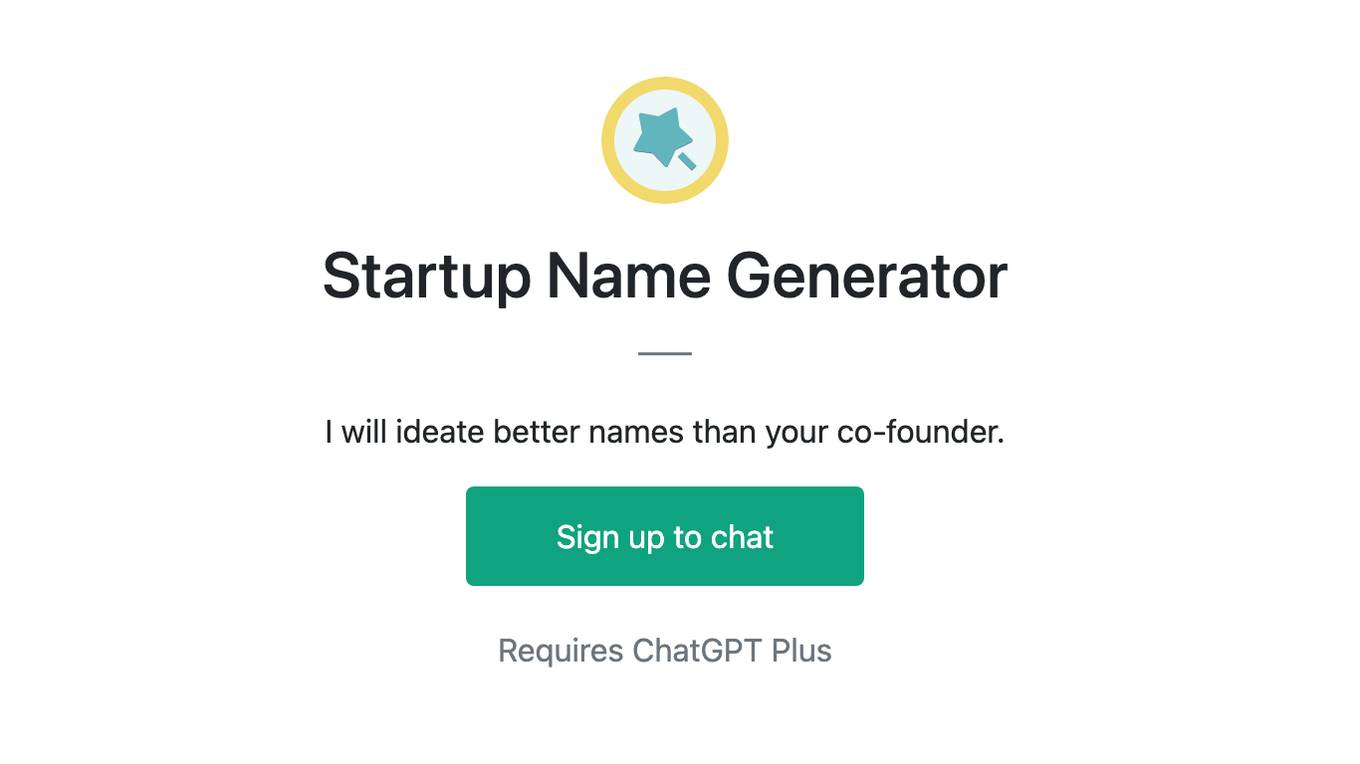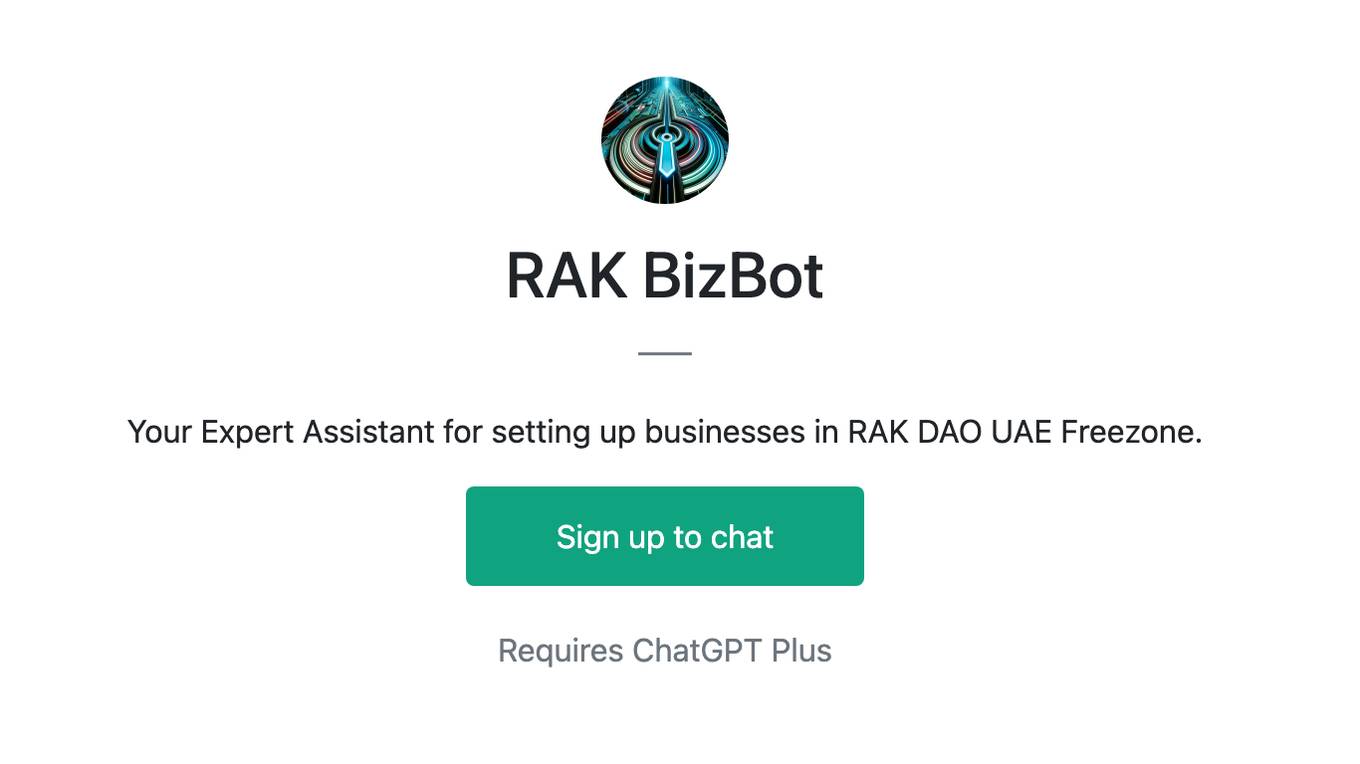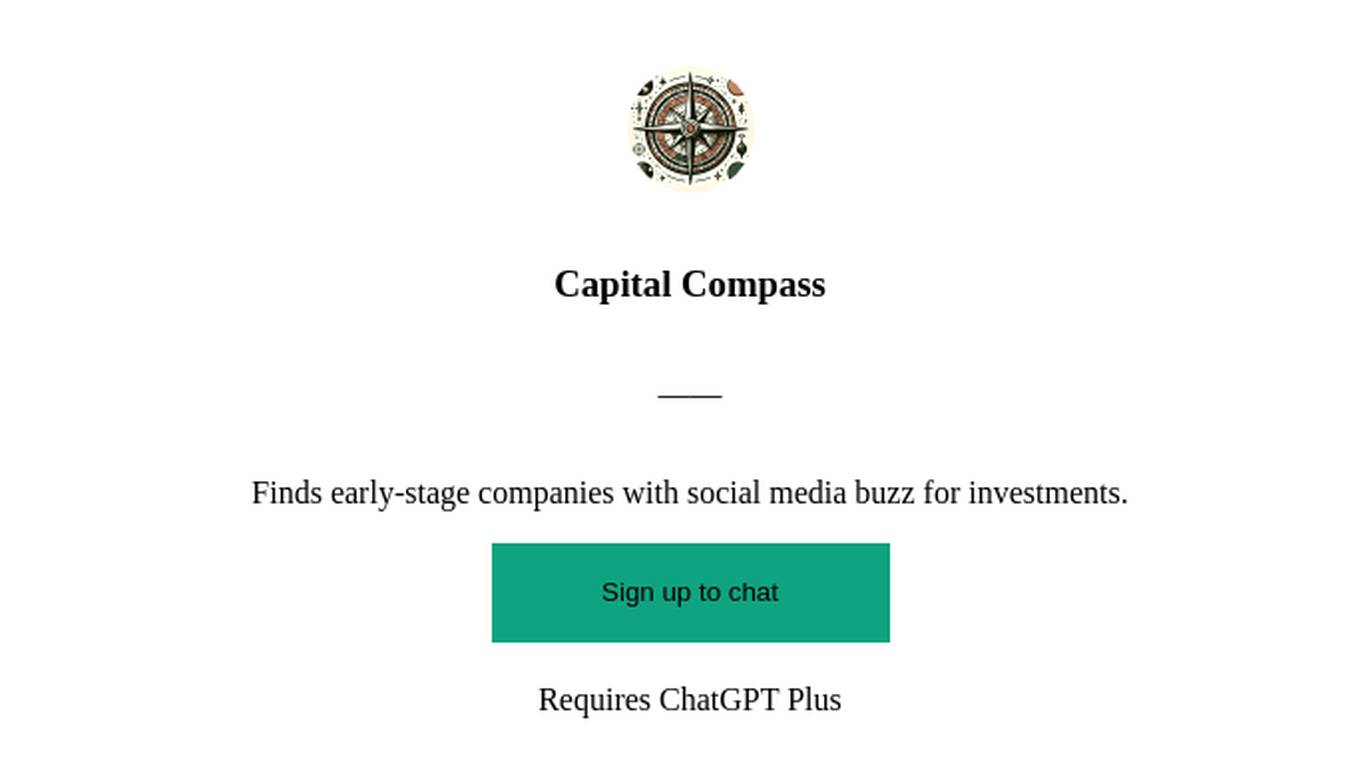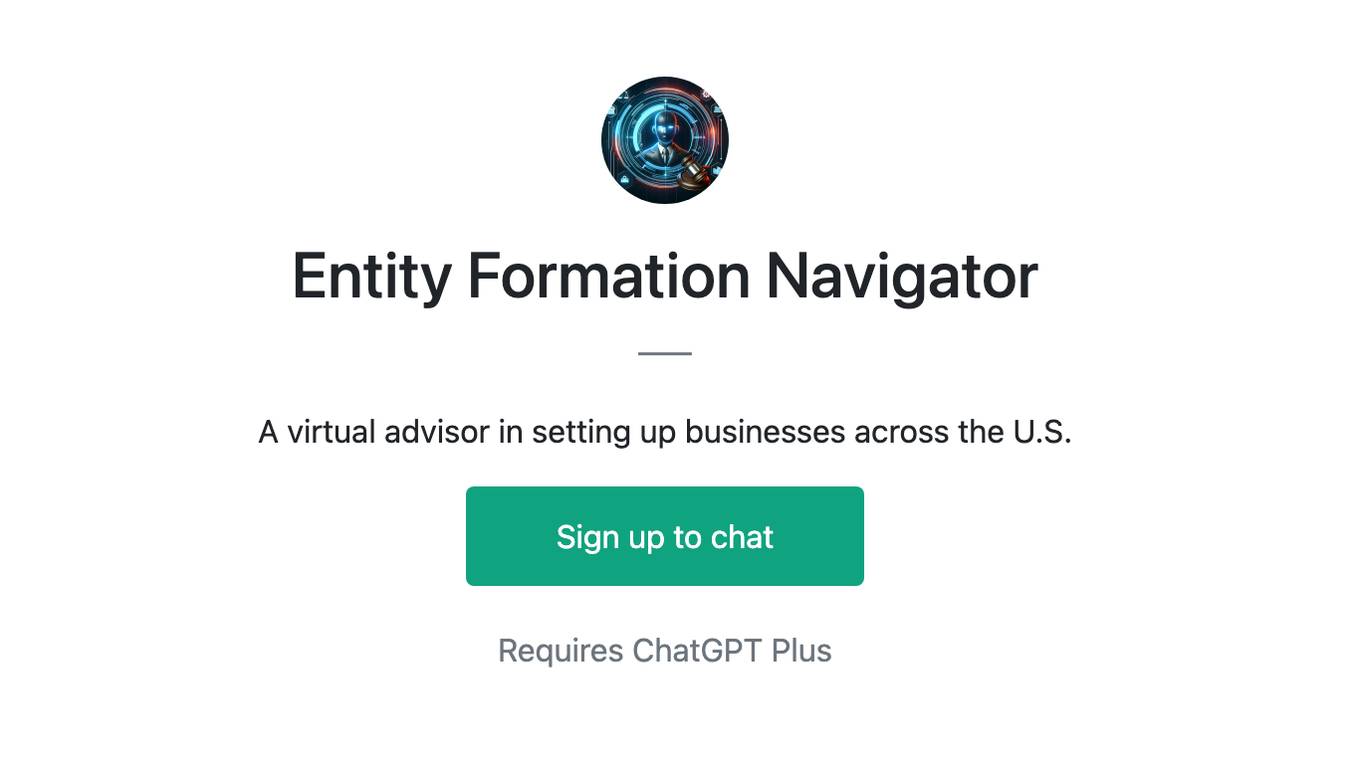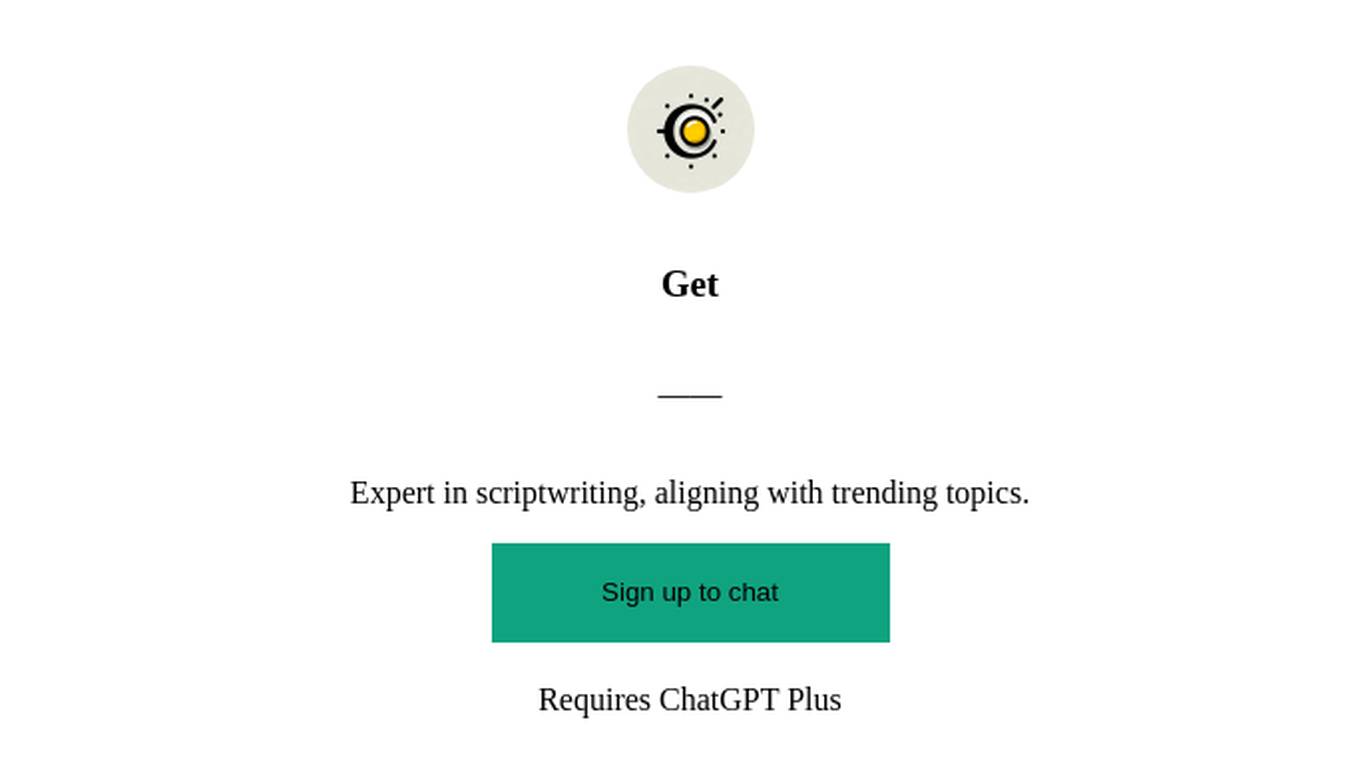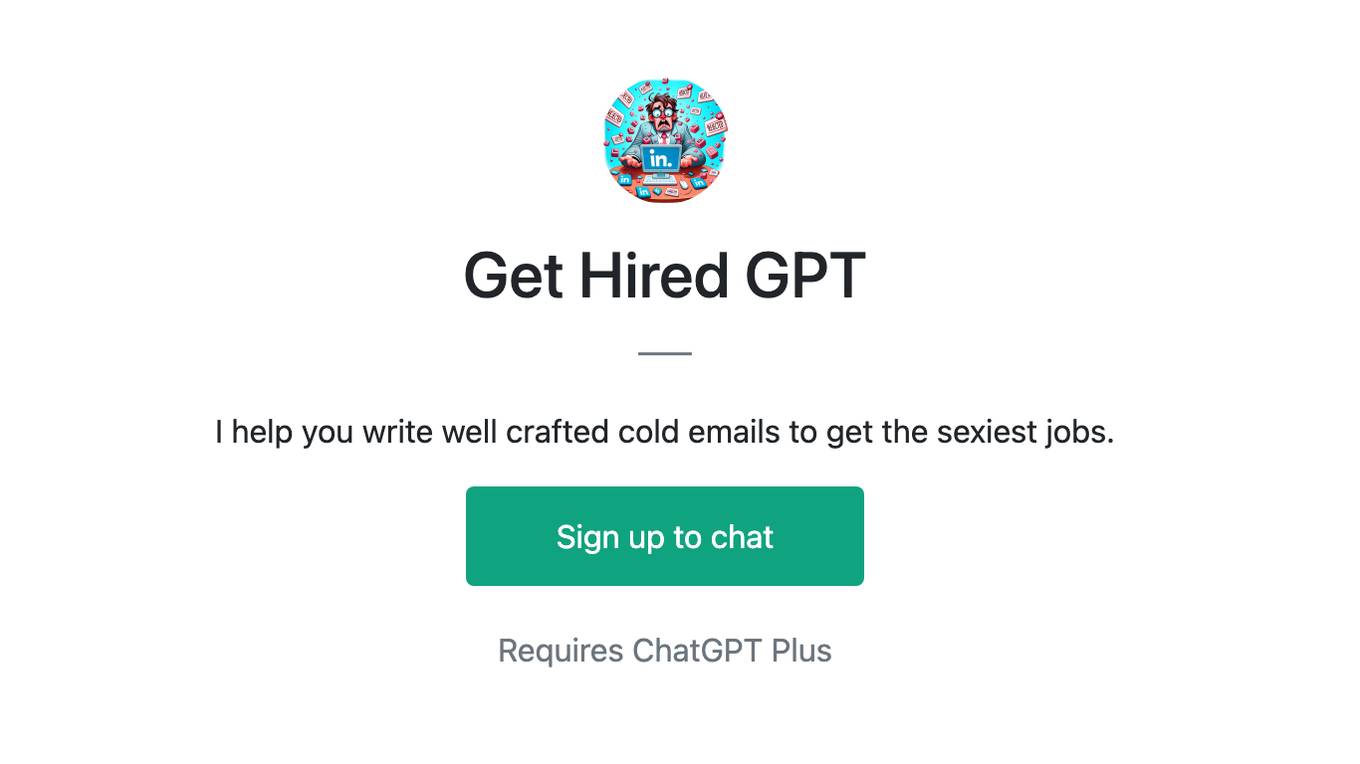Best AI tools for< Get Company Info >
20 - AI tool Sites
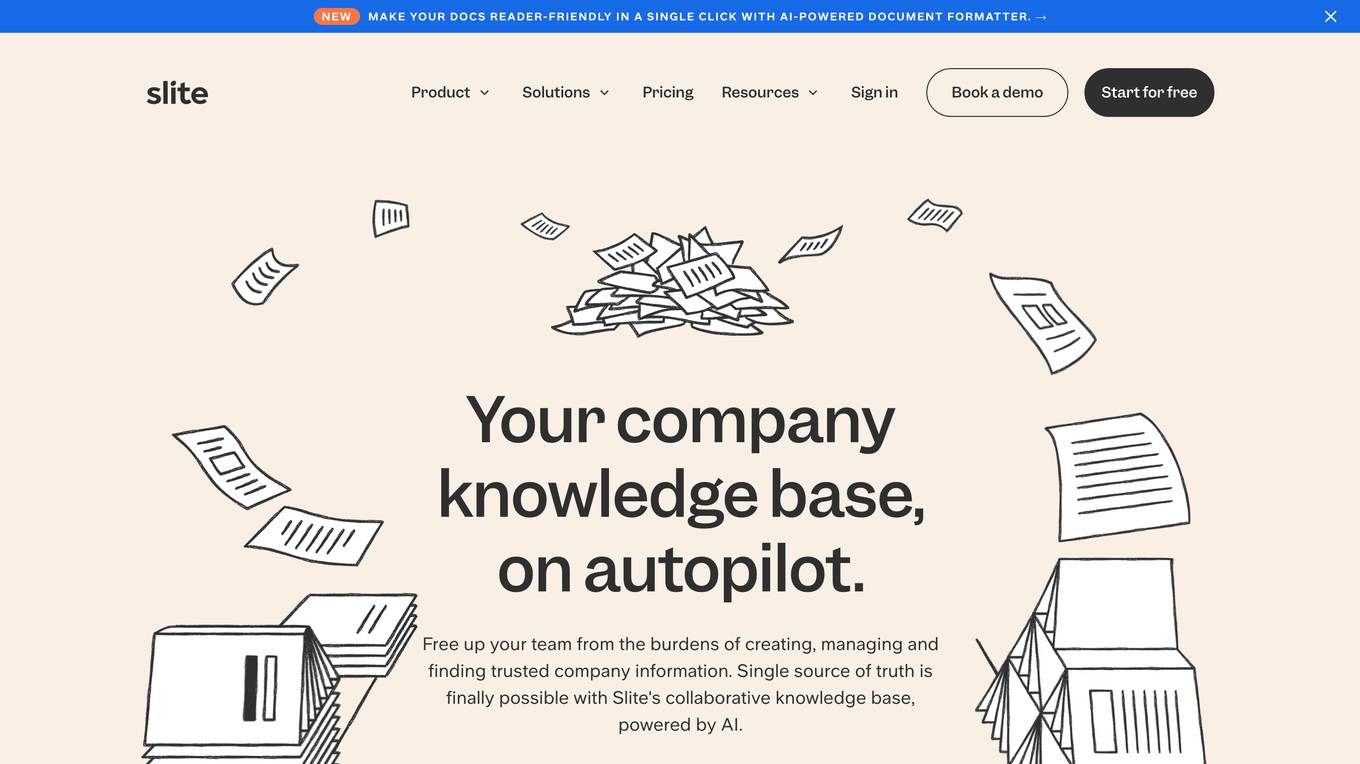
Slite
Slite is an AI-powered knowledge base platform that offers a secure and efficient way to store, organize, and access information. It enables users to create, share, and collaborate on documents, templates, and integrations seamlessly. Slite's AI capabilities enhance user experience by providing automated suggestions, knowledge verification, and AI-powered search functionalities. The platform caters to various industries and departments, including IT & Operations, Product & Engineering, Human Resources, and Customer Support, offering solutions for knowledge management, documentation, and team collaboration.
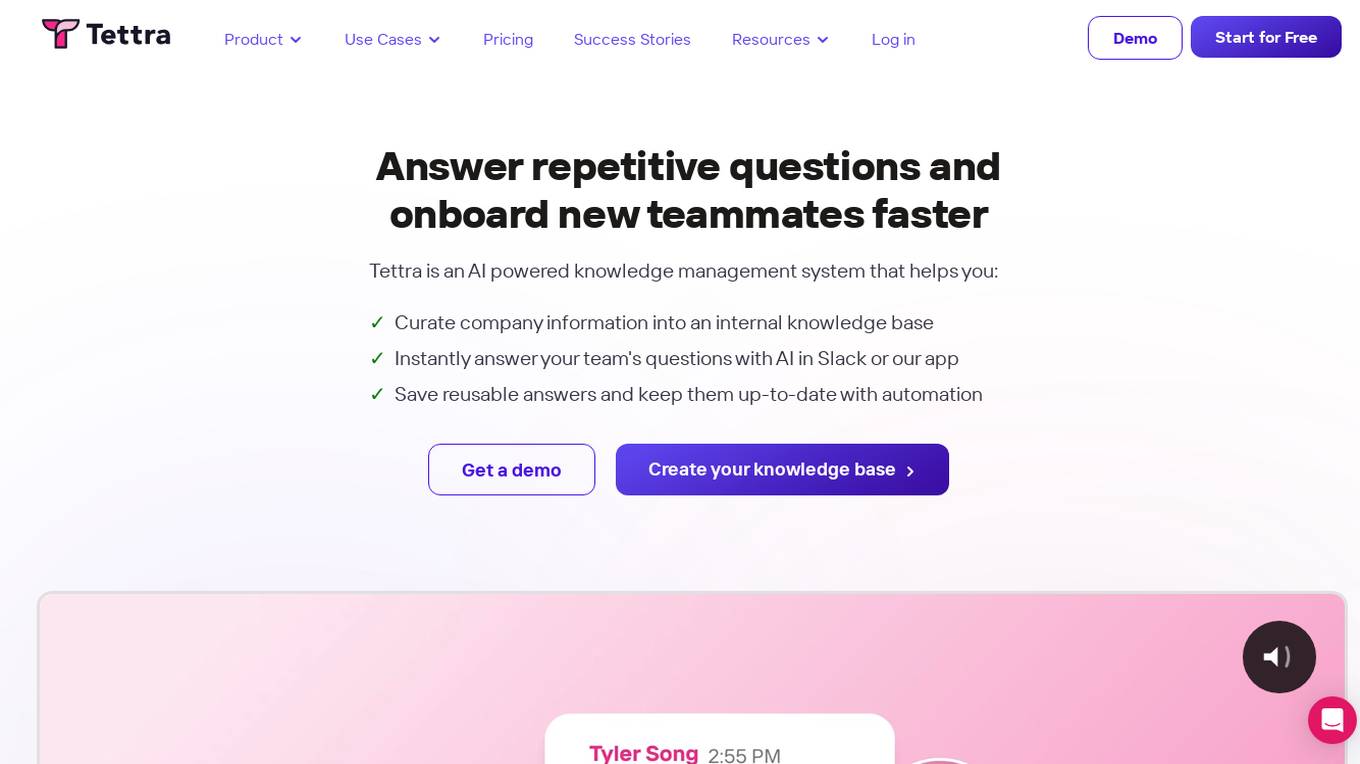
Tettra
Tettra is an AI-powered knowledge management system designed to help organizations curate company information into an internal knowledge base, instantly answer team questions with AI in Slack or the app, save reusable answers with automation, and streamline onboarding processes. It offers features like internal Q&A, knowledge management system, Slack integration, CSAT notifications, and integrations with SupportMan. Tettra is trusted by various teams to organize scattered knowledge and improve efficiency by eliminating bottlenecks and saving time from repetitive questions.
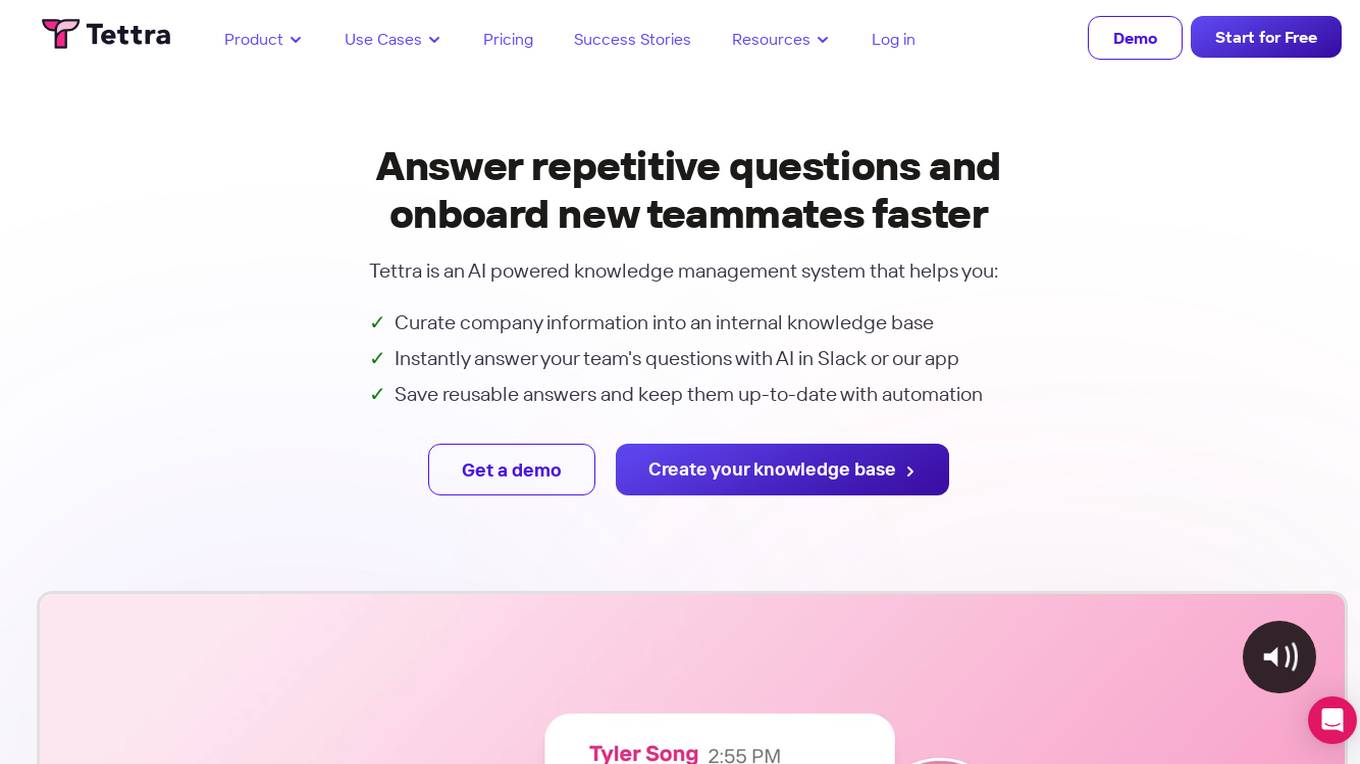
Tettra
Tettra is an AI-powered knowledge management system designed to help companies curate internal information into a knowledge base, instantly answer team questions using AI in Slack or the app, save reusable answers with automation, and facilitate knowledge verification and approval. It streamlines knowledge sharing, reduces repetitive questions, and enhances team productivity.
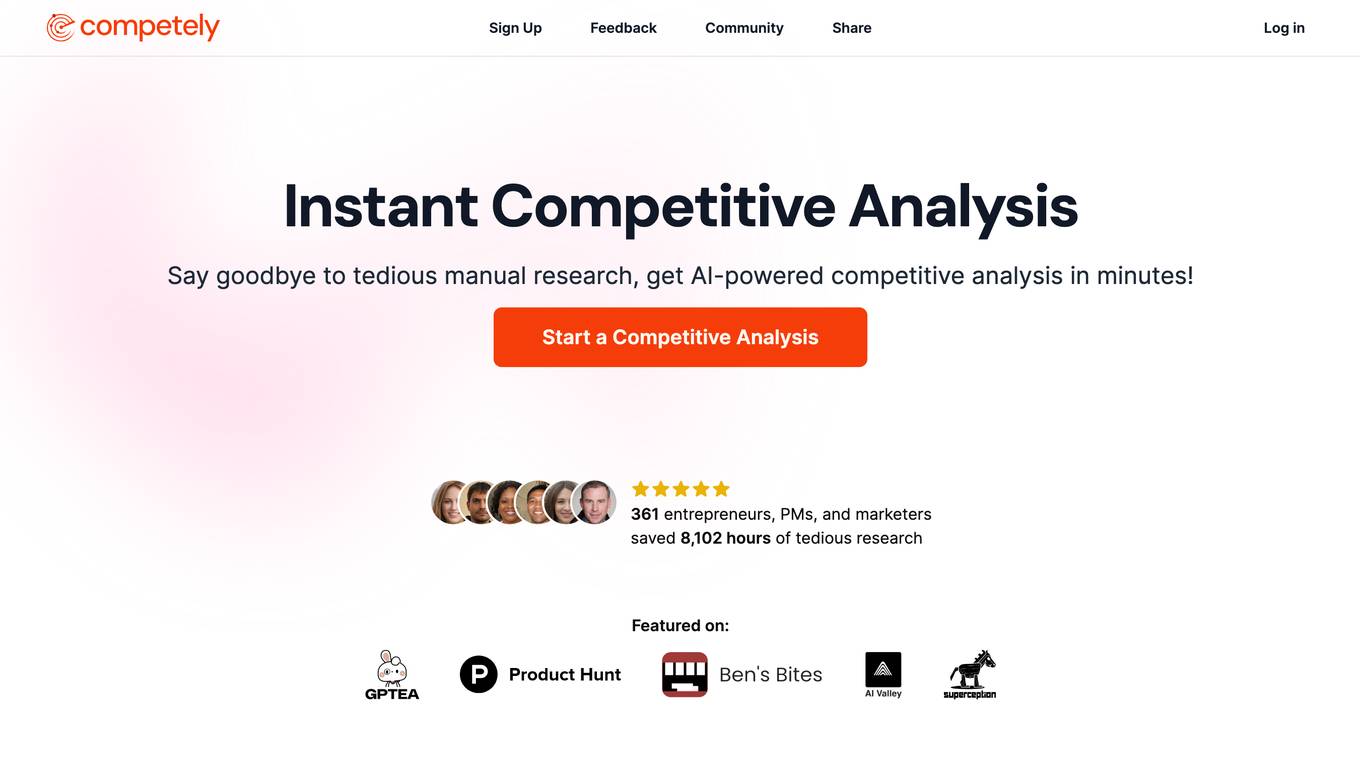
Competely
Competely is an AI-powered competitive analysis tool that helps users say goodbye to tedious manual research by providing comprehensive and detailed insights into competitors across various industries. Users can save days of manual work by utilizing Competely to generate a side-by-side comparison of competitors, covering aspects such as marketing, product features, pricing, audience, customer sentiment, company info, and SWOT analysis. The tool is suitable for founders, executives, marketers, product managers, agencies, and consultants, offering valuable data-driven decisions and strategies to outsmart the competition.
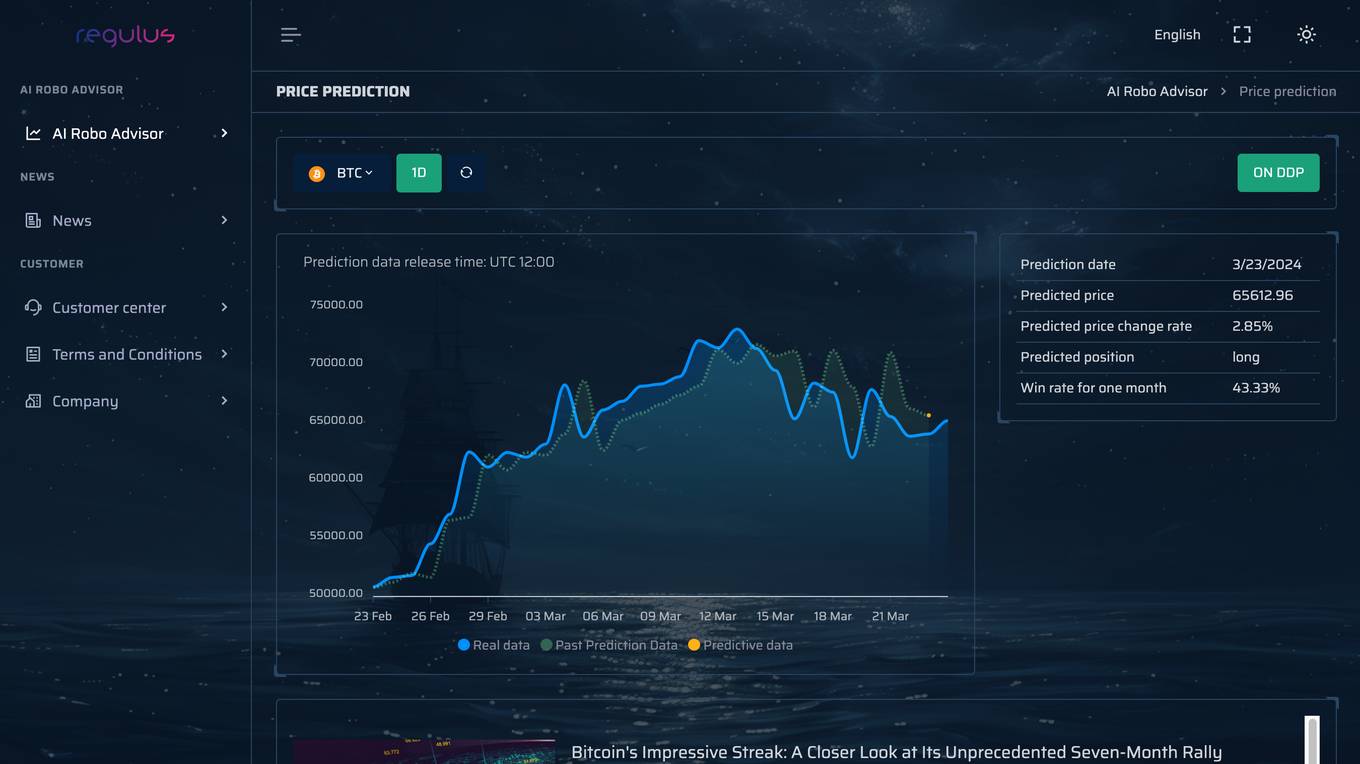
Price Prediction AI Robo Advisor
The website is an AI tool called Price Prediction AI Robo Advisor, developed by Regulus Technologies. It provides cryptocurrency trading predictions and news updates. Users can access the platform in multiple languages and find information about various cryptocurrencies. The tool offers price predictions for popular cryptocurrencies like Bitcoin, Ethereum, and Ripple, along with customer support and company details.
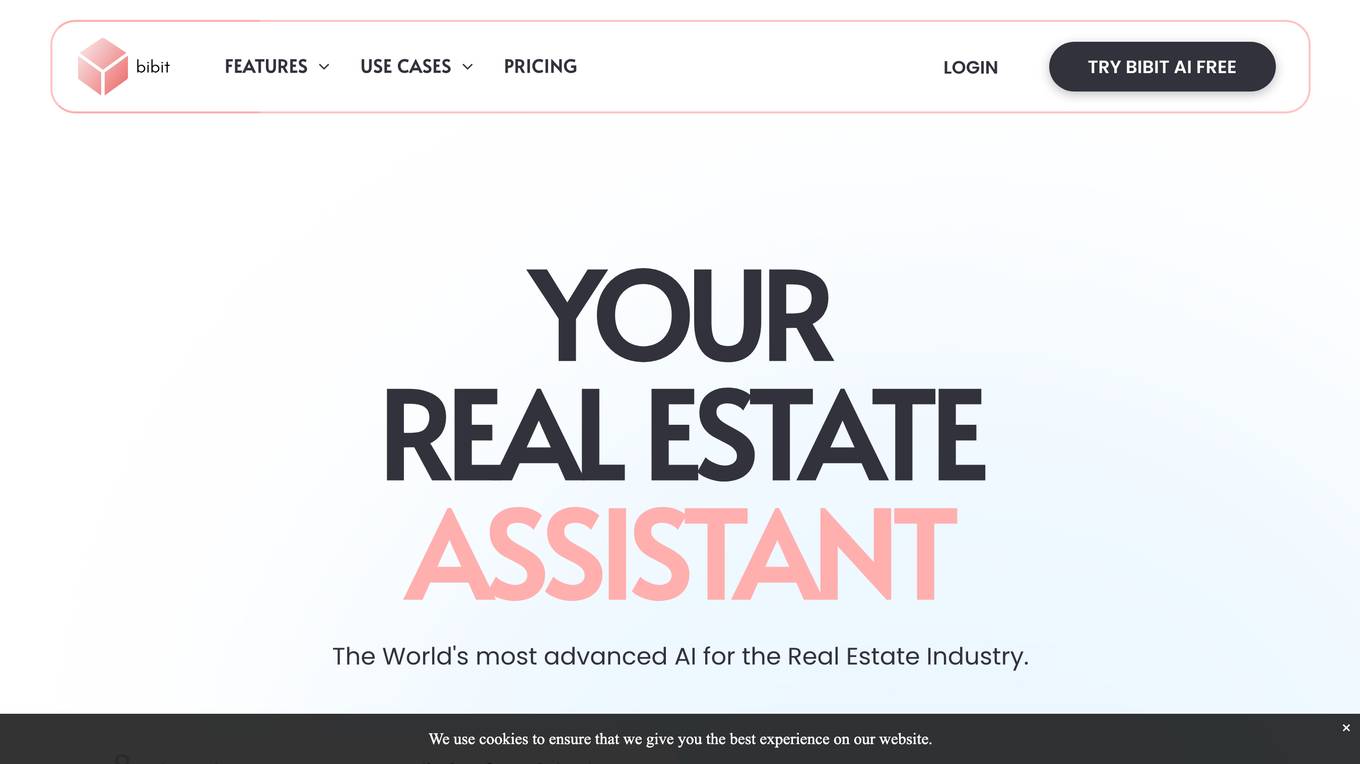
Bibit AI
Bibit AI is a real estate marketing AI designed to enhance the efficiency and effectiveness of real estate marketing and sales. It can help create listings, descriptions, and property content, and offers a host of other features. Bibit AI is the world's first AI for Real Estate. We are transforming the real estate industry by boosting efficiency and simplifying tasks like listing creation and content generation.
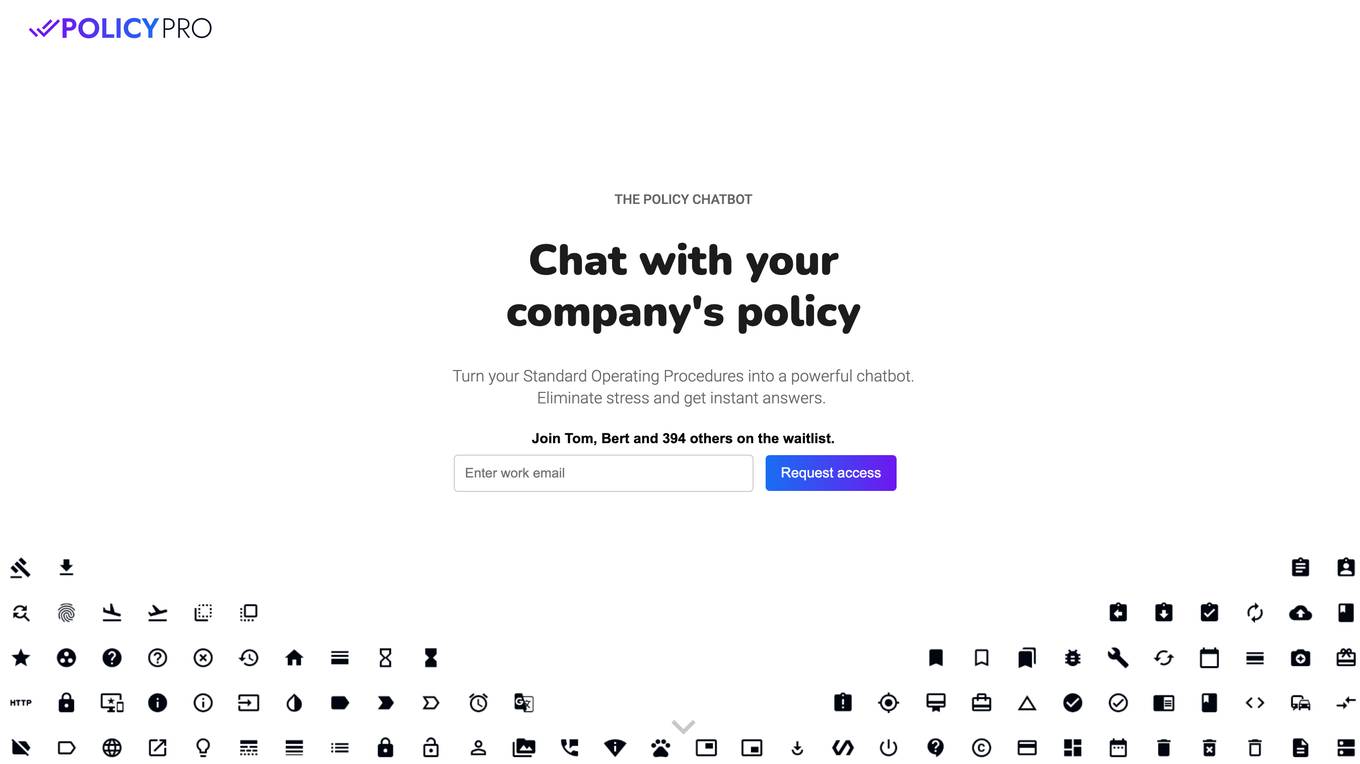
THE POLICY CHATBOT
THE POLICY CHATBOT is an AI-powered tool that transforms Standard Operating Procedures into a dynamic chatbot, providing instant answers and guidance to users within a company. It allows authorized employees to access and interact with company policies in real-time, enhancing efficiency and accuracy in policy-related queries. The chatbot leverages AI technology to extract information from uploaded PDF SOPs, offering a seamless user experience and freeing up employees to focus on more critical tasks.
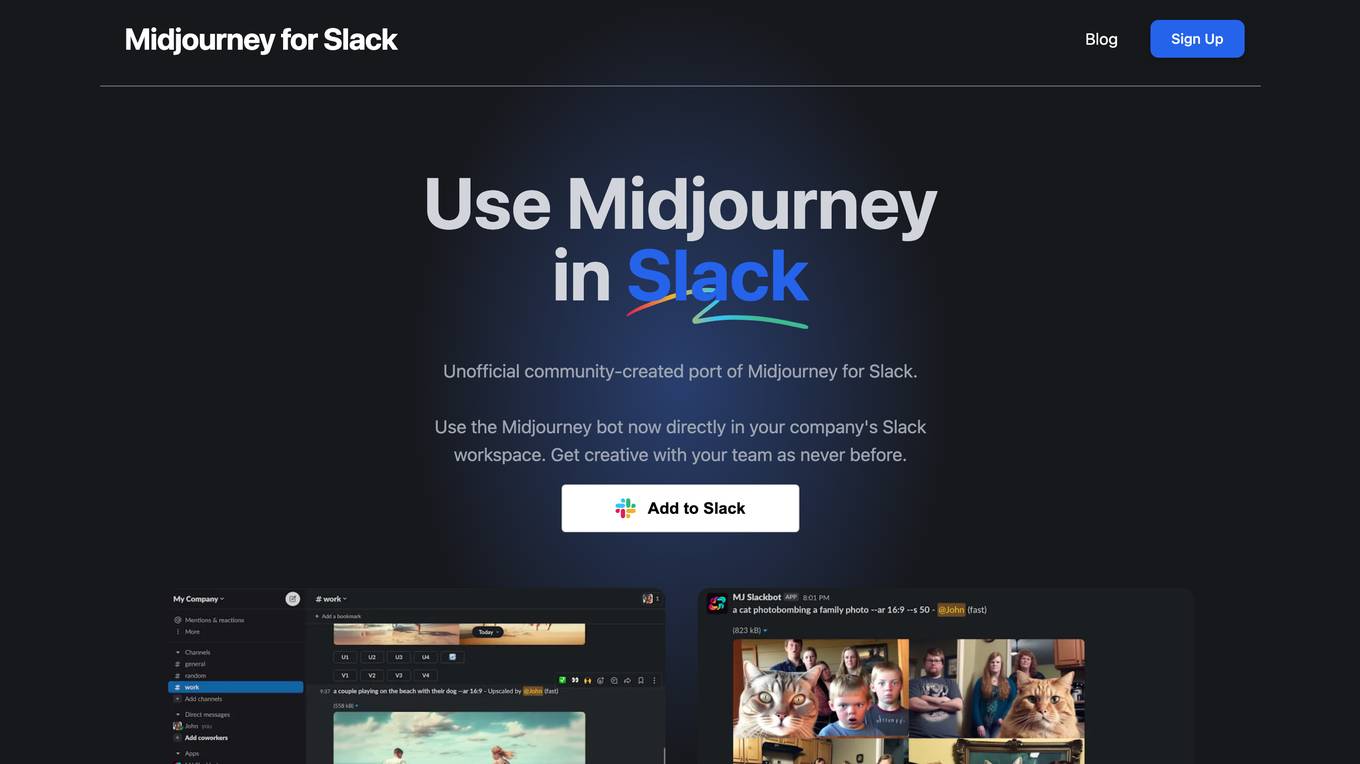
mjslackbot.com
mjslackbot.com is a website that provides resources and information related to mjslackbot. Users can find valuable content and details about mjslackbot on this platform. The website aims to offer a comprehensive source of information for individuals interested in mjslackbot and its functionalities.
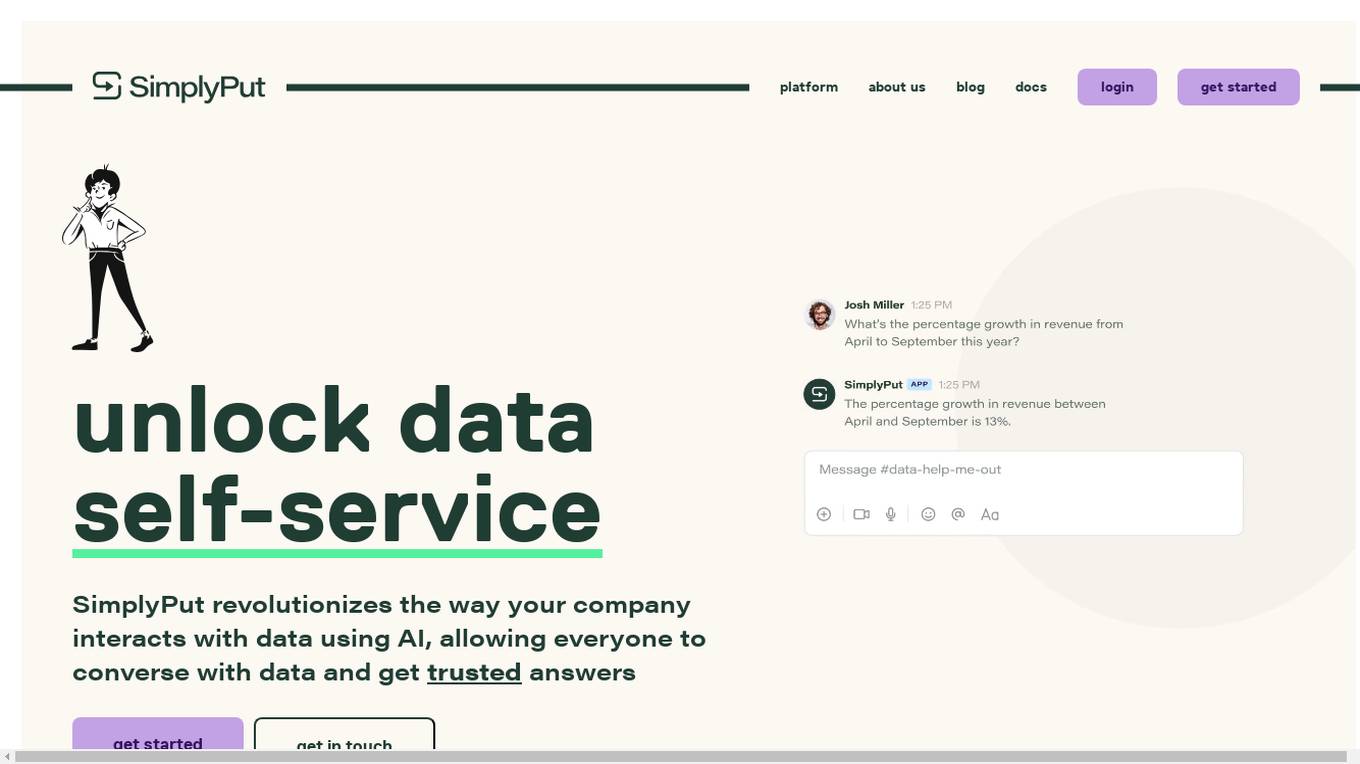
SimplyPut
SimplyPut is an AI-powered data analytics platform that allows users to ask questions about their data in natural language and get instant answers. It is designed to be intuitive and easy to use, and it can be integrated with a variety of data sources. SimplyPut is used by businesses of all sizes to improve their data literacy and make better decisions.
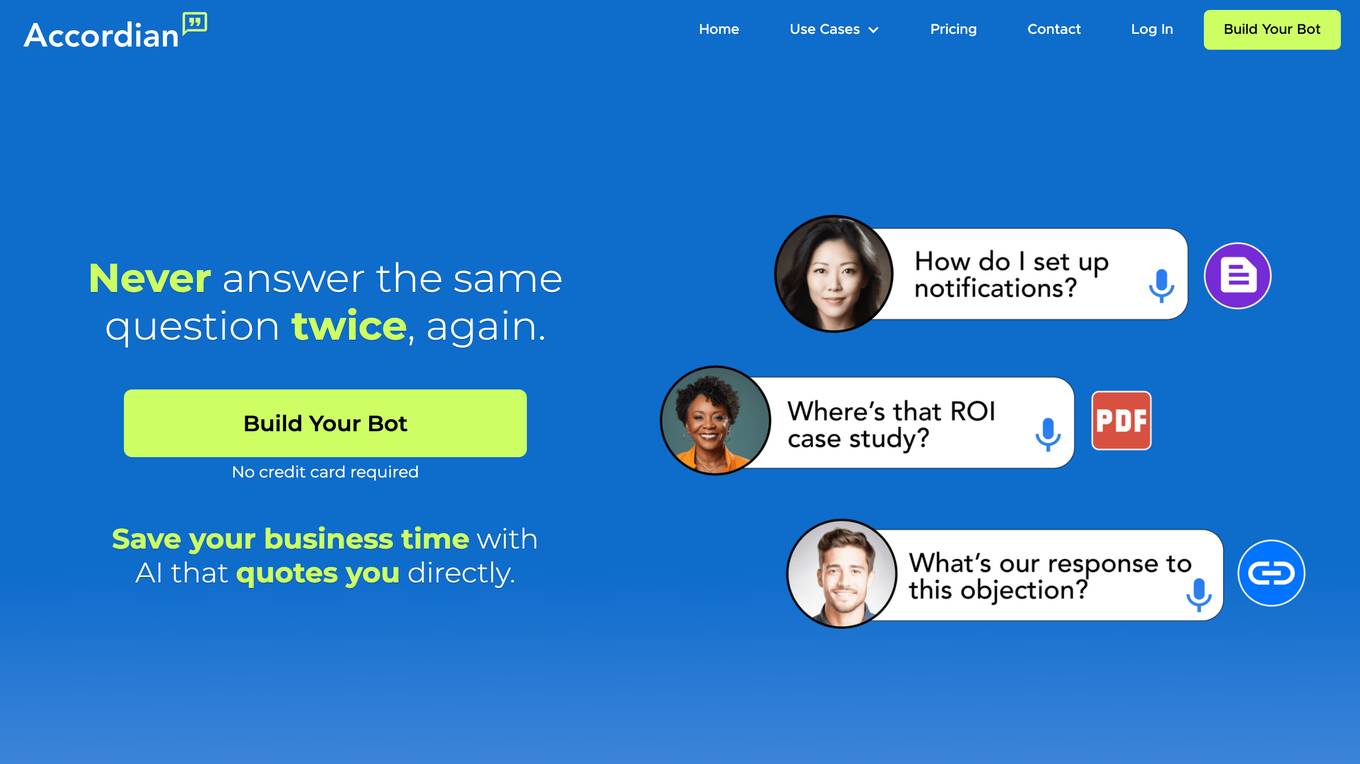
knowledgebot.ai
knowledgebot.ai is an AI tool designed to revolutionize education by leveraging data-informed teaching, personalized learning, immersive technologies, and global connectivity. It aims to enhance the learning experience, differentiate support, accelerate feedback loops, and create richer learning experiences at scale. The tool focuses on reshaping education through micro-credentials, competency-based education, and authentic assessments to reflect real mastery. It emphasizes human-centered learning by combining adaptive platforms with teacher expertise and ensuring accessibility for every learner. Guardrails around bias, privacy, and transparency are essential to maintain trust and protect student agency. The tool advocates for investment in educator development, robust data governance, and open standards to drive high-impact practices in education.
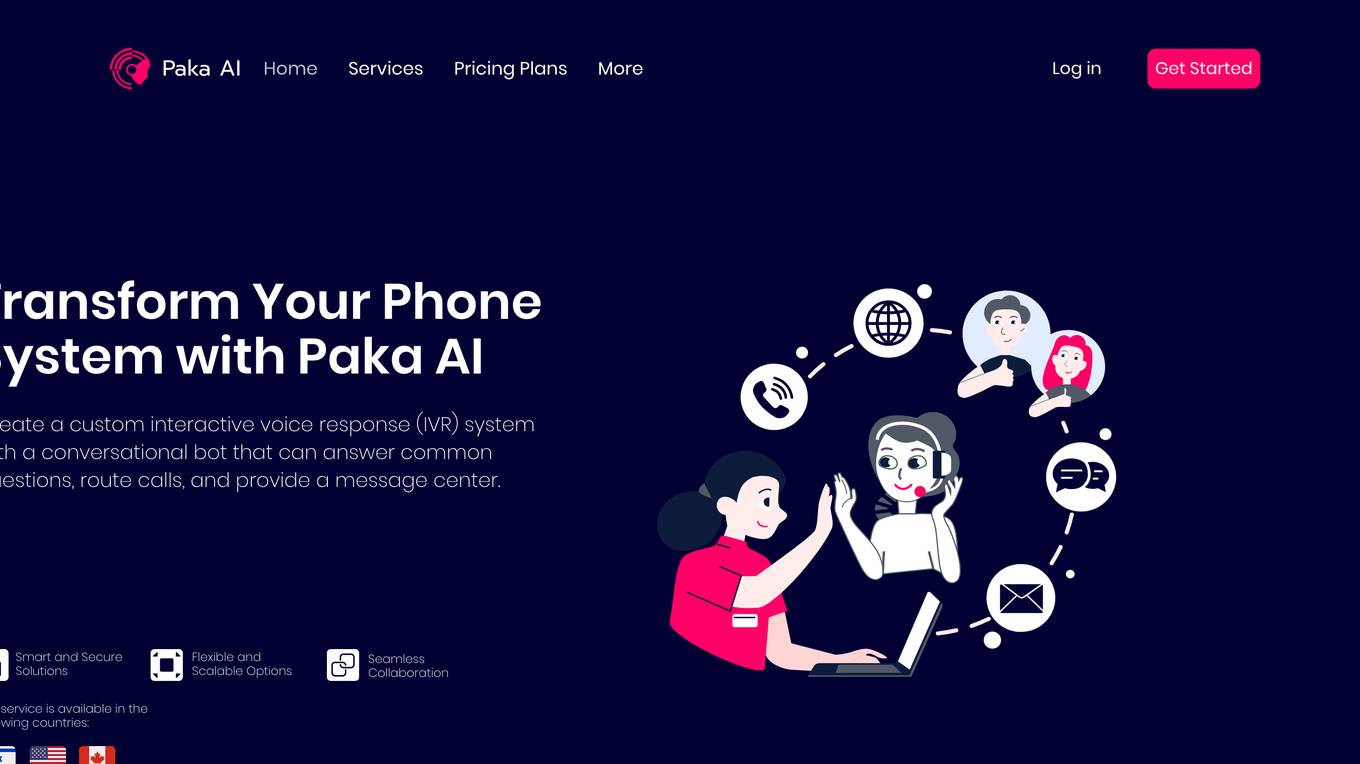
Paka AI
Paka AI is a cloud-based phone system that uses artificial intelligence (AI) to automate customer interactions. It offers a range of services, including custom AI bot creation, interactive voice response (IVR) system, and message center. Paka AI's AI-powered bots can handle common queries round the clock, so businesses can focus on running their operations. The company's technology is designed to offer a seamless and interactive customer experience.
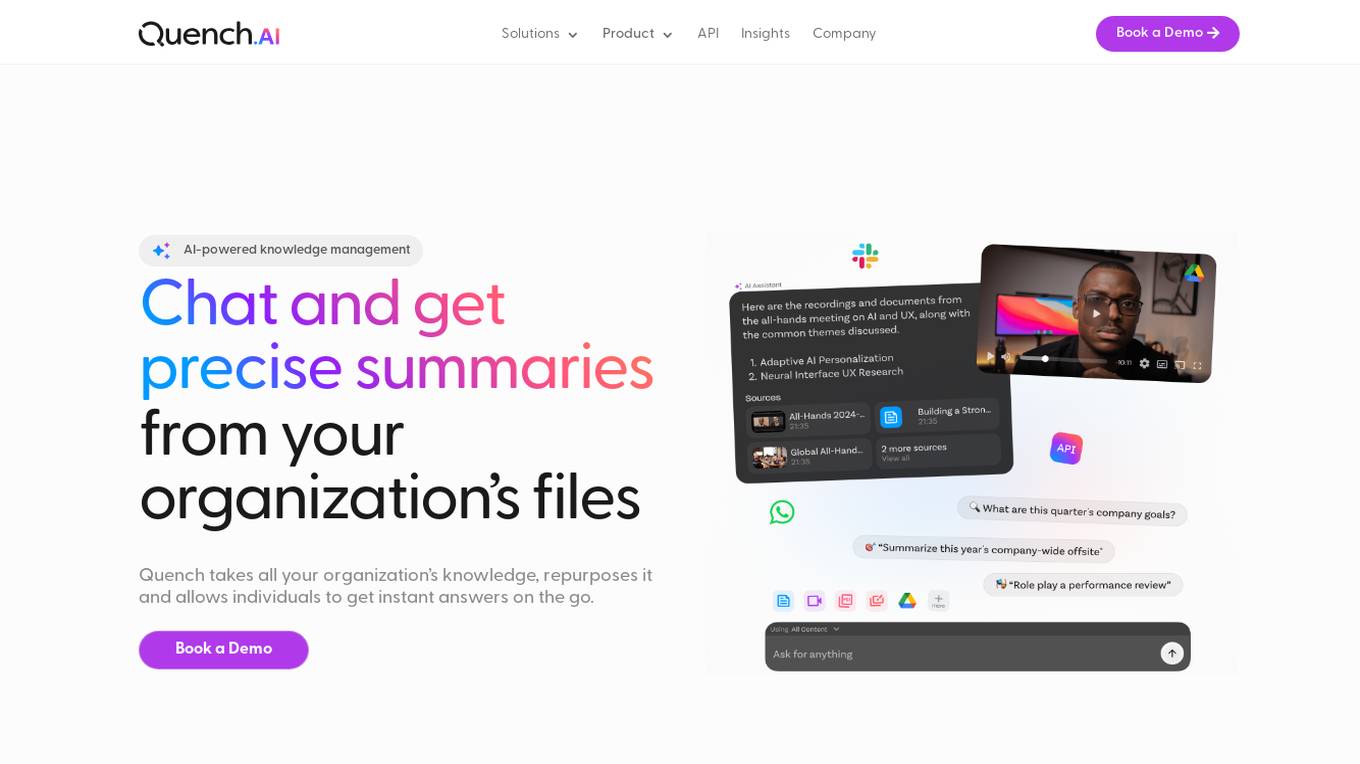
Quench.AI
Quench.AI is an AI-powered knowledge management platform that helps organizations access and utilize their internal knowledge effectively. It offers features such as contextual search, interactive chat, AI roleplay, and centralized knowledge organization. Quench.AI aims to provide instant answers and personalized insights to users, enabling them to work more efficiently and improve their performance.
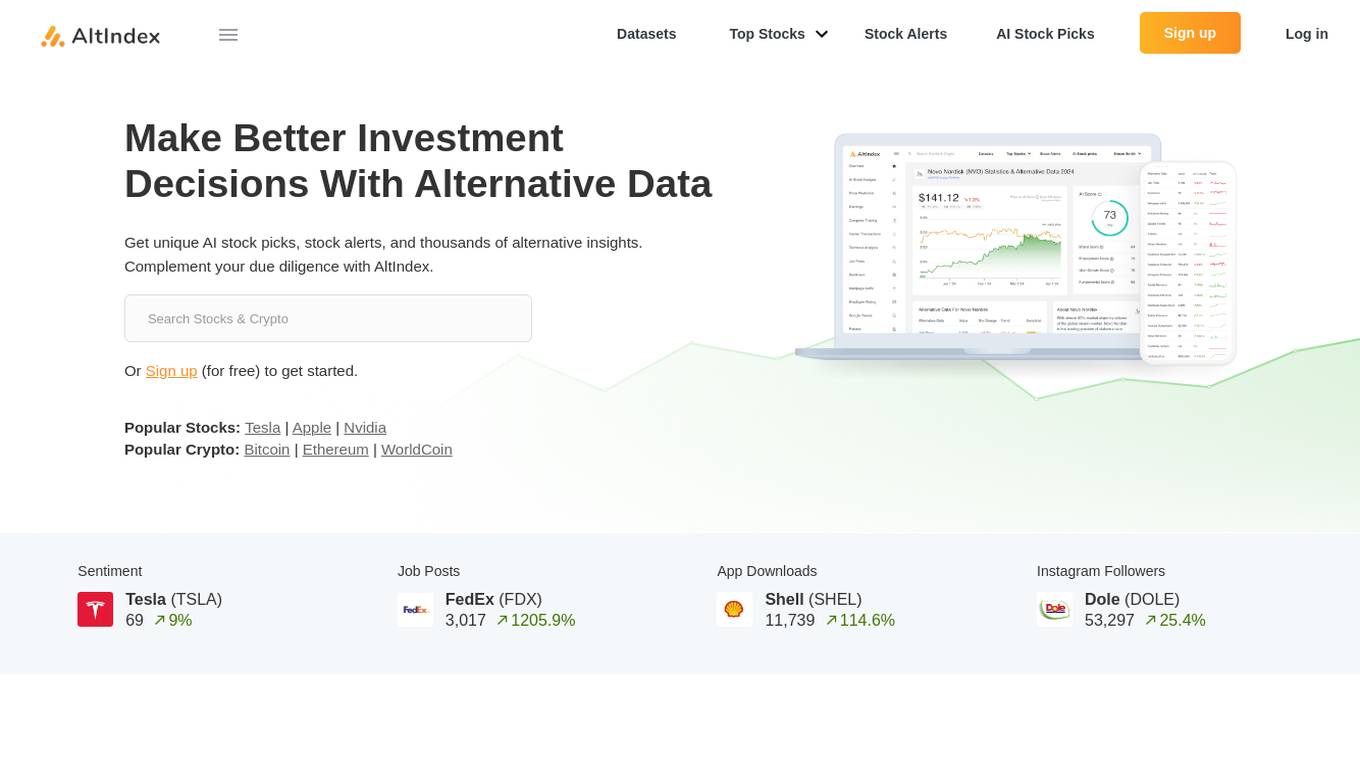
AltIndex
AltIndex is an AI-powered investment analysis platform that provides unique AI stock picks, stock alerts, and alternative insights to help users make better investment decisions. The platform goes beyond traditional financial data by integrating various alternative data points such as job postings, website traffic, customer satisfaction, app downloads, and social media trends. AltIndex offers impactful insights and alerts, cutting-edge solutions to stay informed about companies in your portfolio, and advanced algorithms for real-time investment decision-making.

The Keyword
The Keyword is a blog by Google that covers the latest news and stories about Google products and technology. The blog is written by Google employees and covers a wide range of topics, including product updates, company news, and technology trends. The Keyword is a great resource for anyone who wants to stay up-to-date on the latest from Google.
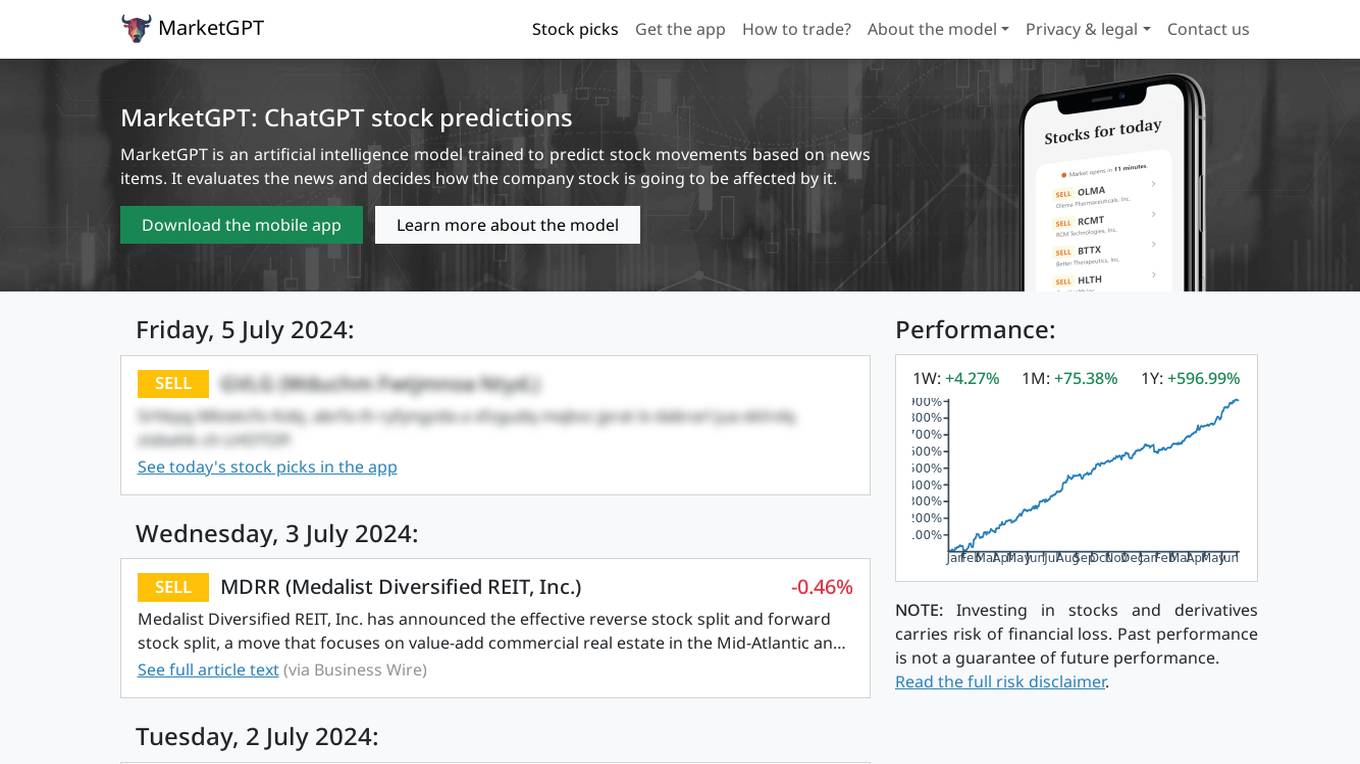
MarketGPT
MarketGPT is an artificial intelligence model trained to predict stock movements based on news items. It evaluates the news and decides how the company stock is going to be affected by it. Users can access the model through the MarketGPT website or mobile app to get stock predictions and picks. The model's performance can be viewed for different time frames such as 1 week, 1 month, and 1 year. However, users are advised that investing in stocks and derivatives carries a risk of financial loss, and past performance is not a guarantee of future performance. MarketGPT is designed to assist users in making informed decisions in the stock market.
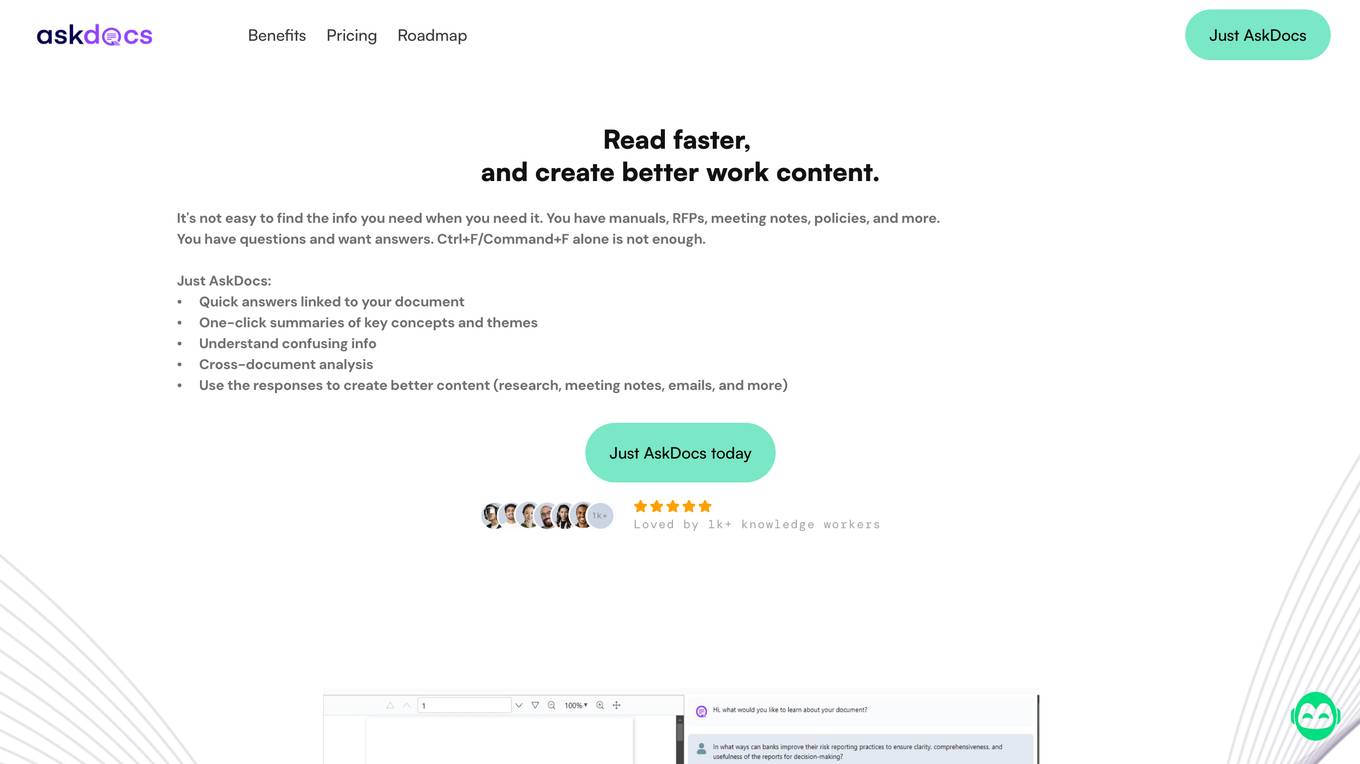
AskDocs
AskDocs is an AI-powered document assistant designed to help users read faster and create better work content. It offers cross-document analysis, quick answers linked to documents, one-click summaries of key concepts, and the ability to understand confusing information. With a focus on enhancing productivity, AskDocs is trusted by students, knowledge workers, and small businesses to streamline research, meeting notes, emails, and more. The tool supports various document types and provides instant answers directly linked to sources within the uploaded documents.
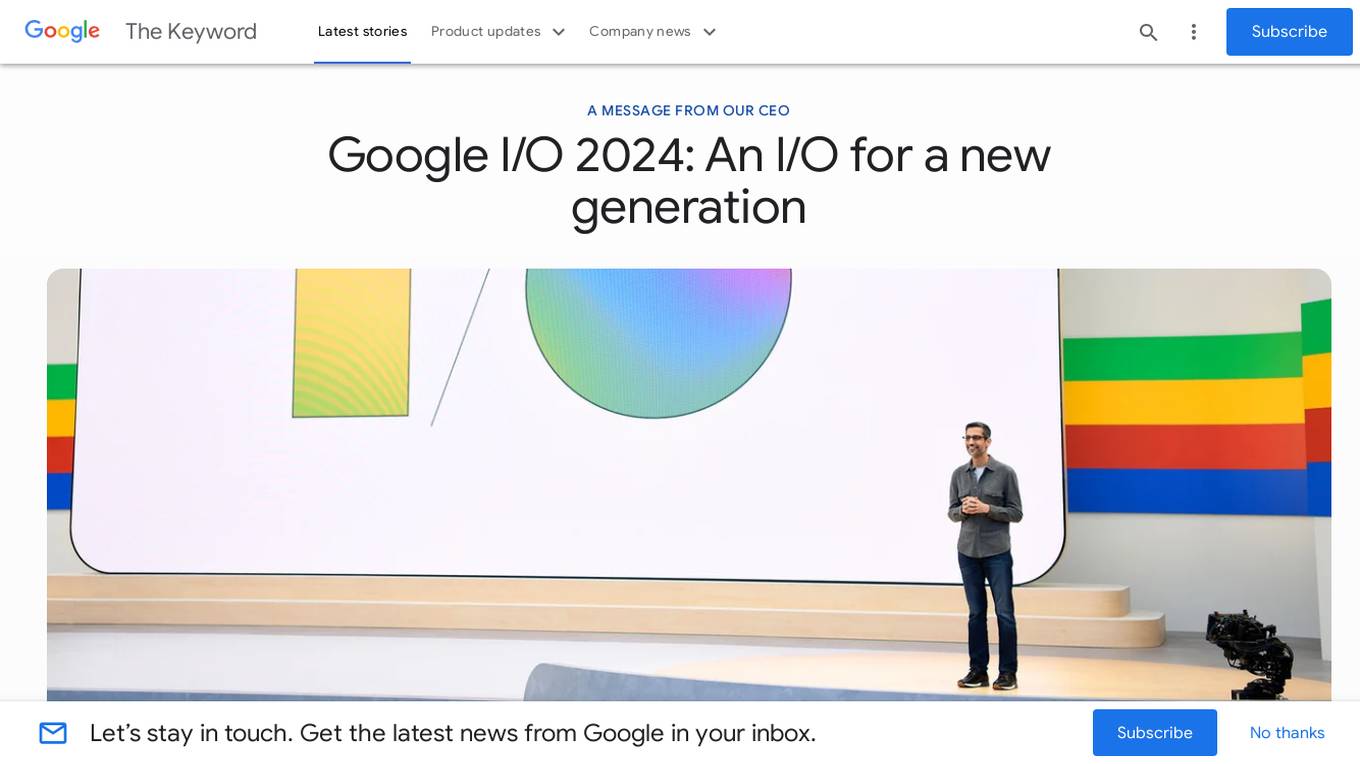
The Keyword
The Keyword is a website that provides Google product and technology news and stories. It covers a wide range of topics including product updates, company news, technology, AI, and more. The site offers insights into Google's latest developments, initiatives, and events, keeping users informed about the tech giant's advancements and innovations.

Dashworks
Dashworks is an AI-powered knowledge assistant that provides accurate answers to internal employee questions in seconds. It unifies all your company knowledge bases to provide comprehensive and secure search capabilities. With Dashworks, you can reduce the time spent responding to repetitive questions, empower every team member with instant access to collective knowledge, and make quick and informed decisions across your organization.
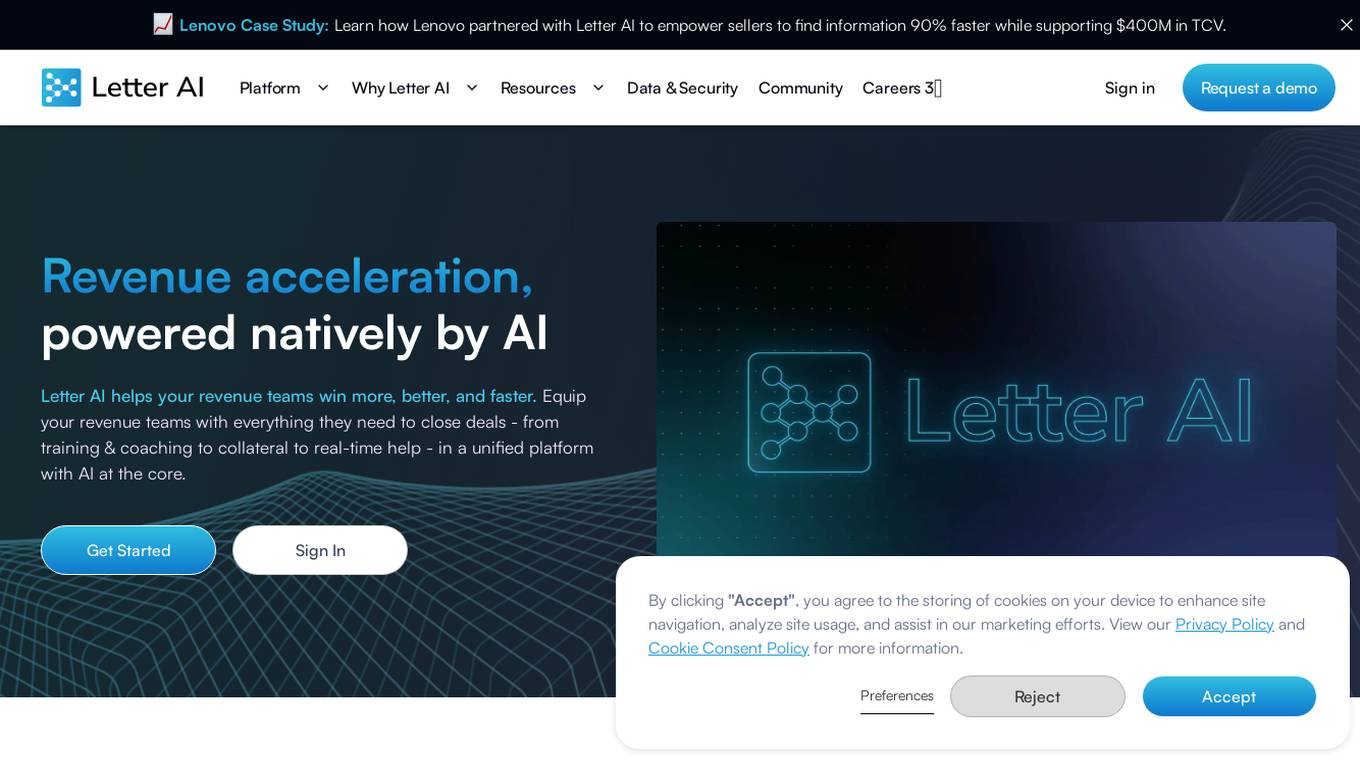
Letter AI
Letter AI is a revenue acceleration platform powered by Generative AI, designed to empower sales teams to find information faster and support revenue growth. The platform offers AI-powered training and coaching, content creation and management, real-time assistance from an AI co-pilot, and tools for deal pursuit automation. Letter AI combines generative AI technology with company-specific data to deliver a unified revenue enablement platform, enhancing user experience and driving cost savings. The platform ensures security and privacy by adhering to industry-leading standards and responsible data practices.
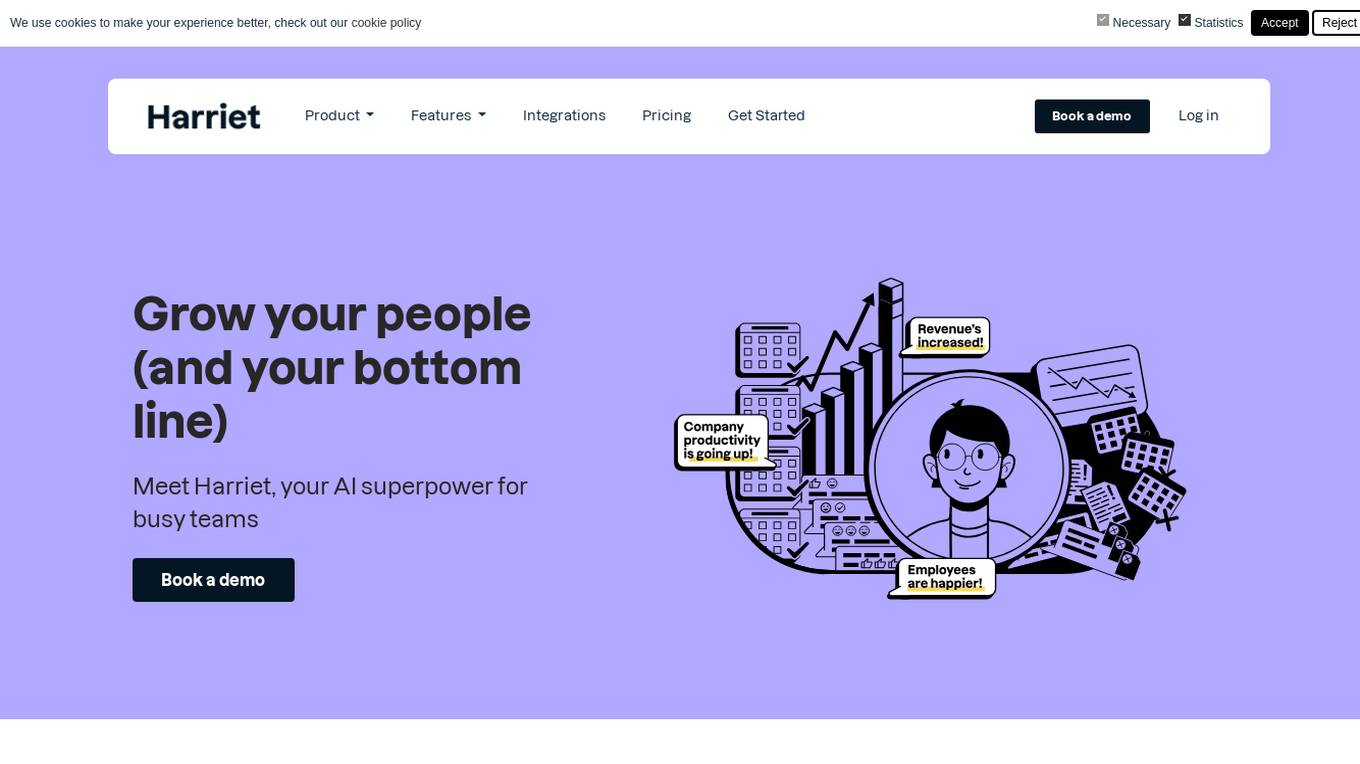
Harriet
Harriet is an AI-powered employee experience platform designed to engage teams and provide seamless support. It offers instant AI support, HR ticketing system, knowledge management, automated employee lifecycle, people calendar planner, analytics, and insights. Harriet aims to make employees' lives easier by providing quick responses, seamless automation, and accurate information through various communication channels like Slack, Teams, GChat, and SMS. The platform is integrated with HR systems, trained on company policies, and offers 24/7 support. Harriet helps organizations improve productivity, employee satisfaction, and operational efficiency.
0 - Open Source AI Tools
20 - OpenAI Gpts
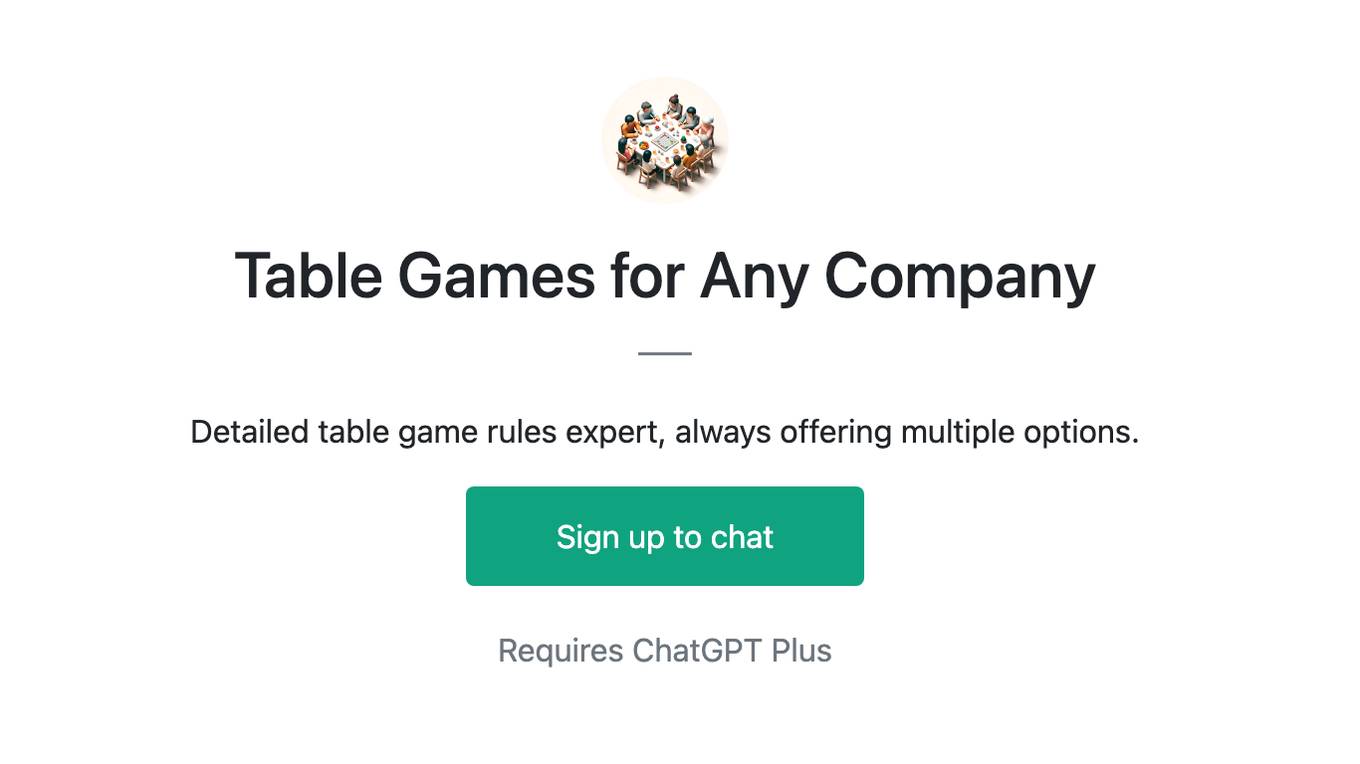
Table Games for Any Company
Detailed table game rules expert, always offering multiple options.
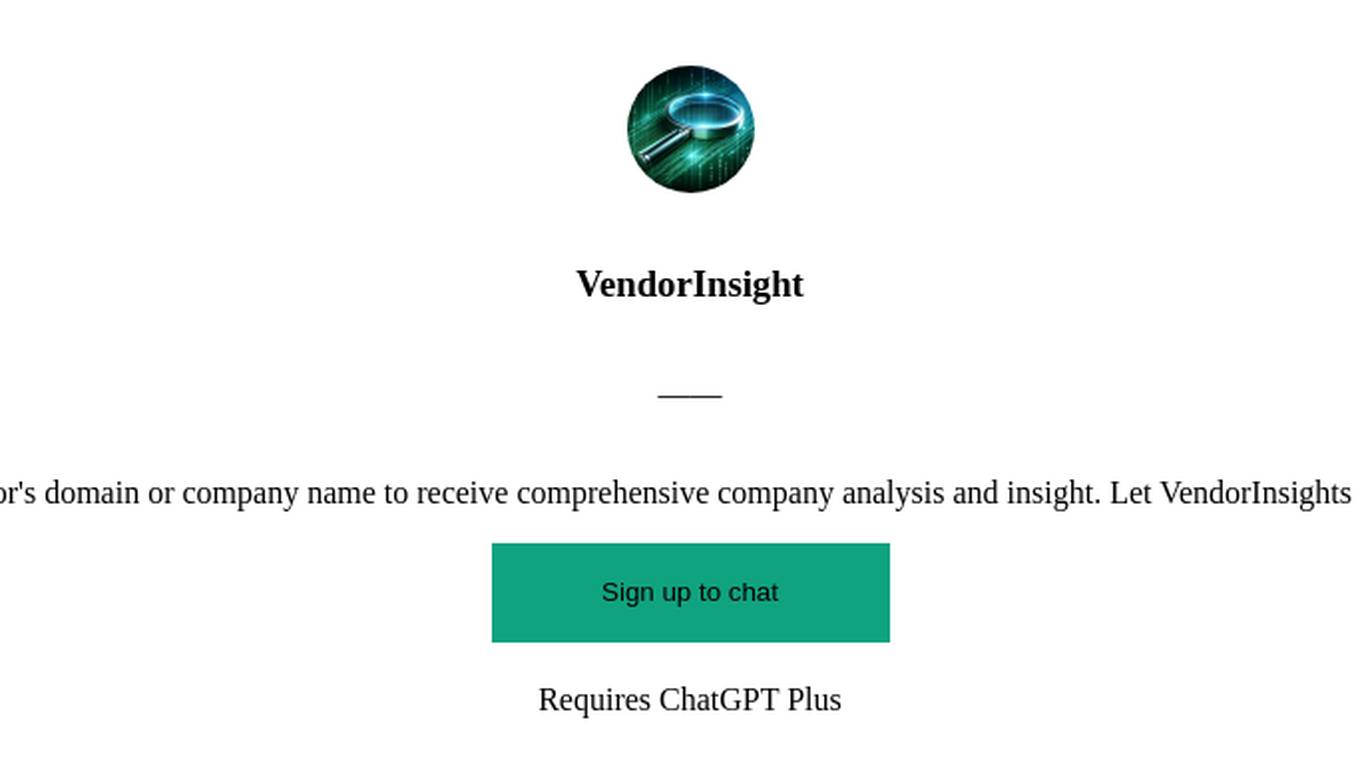
VendorInsight
Enter a software vendor's domain or company name to receive comprehensive company analysis and insight. Let VendorInsights bootstrap your research.
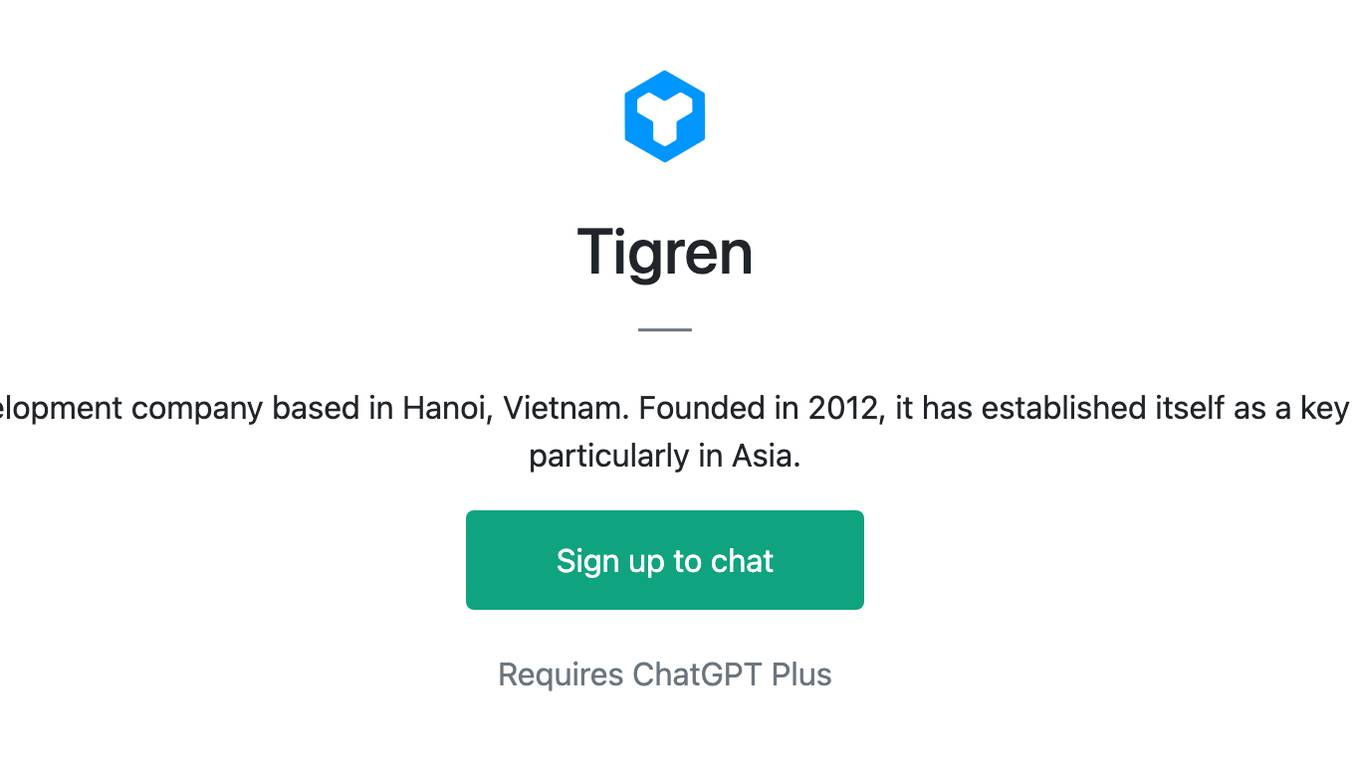
Tigren
Tigren is an e-commerce web and app development company based in Hanoi, Vietnam. Founded in 2012, it has established itself as a key player in the e-commerce solution sector, particularly in Asia.

401k to Gold IRA Rollover Tool - FREE
This is a guide on how to do a 401k to gold IRA rollover, and select the best company to work with.

Chichi | Get coaching for the workplace
An delivery and workplace coach providing a space for you to explore topics meaningful to you.
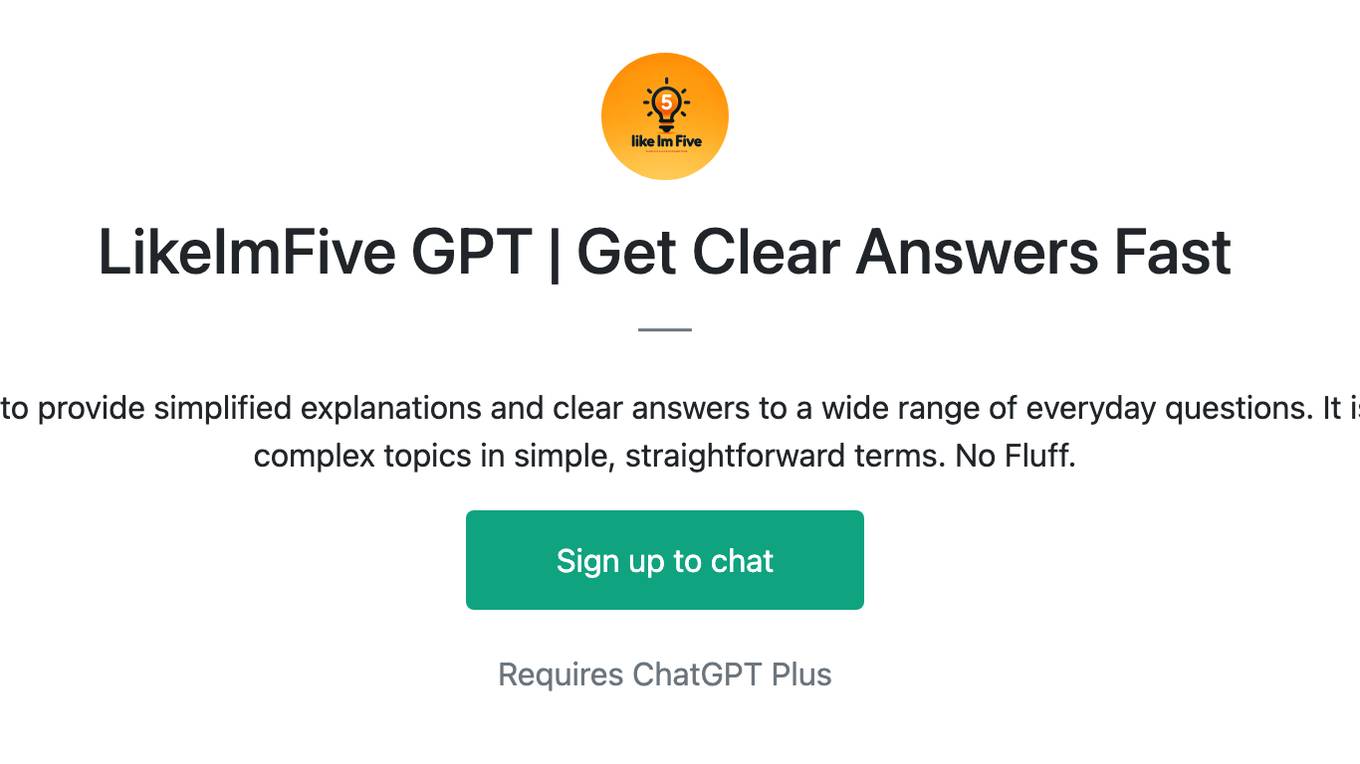
LikeImFive GPT | Get Clear Answers Fast
"LikeImFive" is a specialized GPT designed to provide simplified explanations and clear answers to a wide range of everyday questions. It is tailored for those seeking to understand complex topics in simple, straightforward terms. No Fluff.
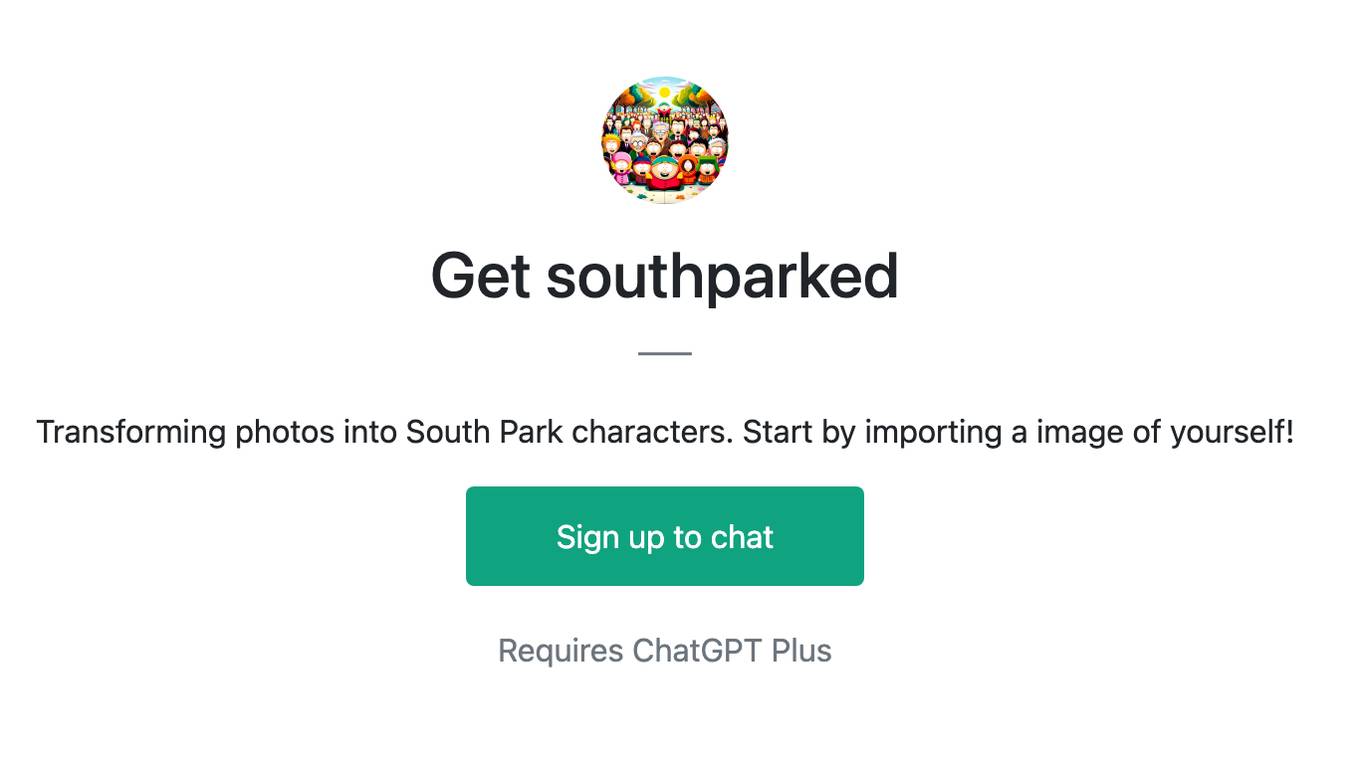
Get southparked
Transforming photos into South Park characters. Start by importing a image of yourself!
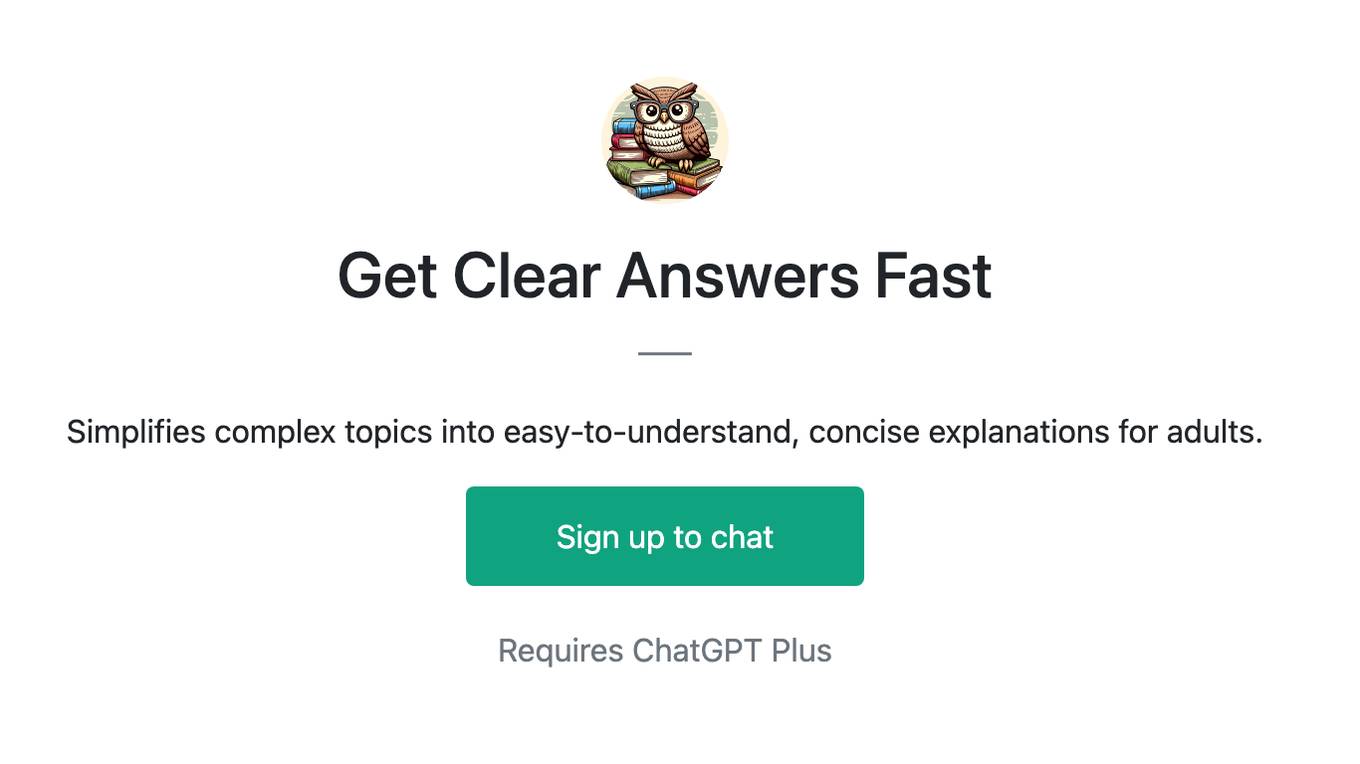
Get Clear Answers Fast
Simplifies complex topics into easy-to-understand, concise explanations for adults.
